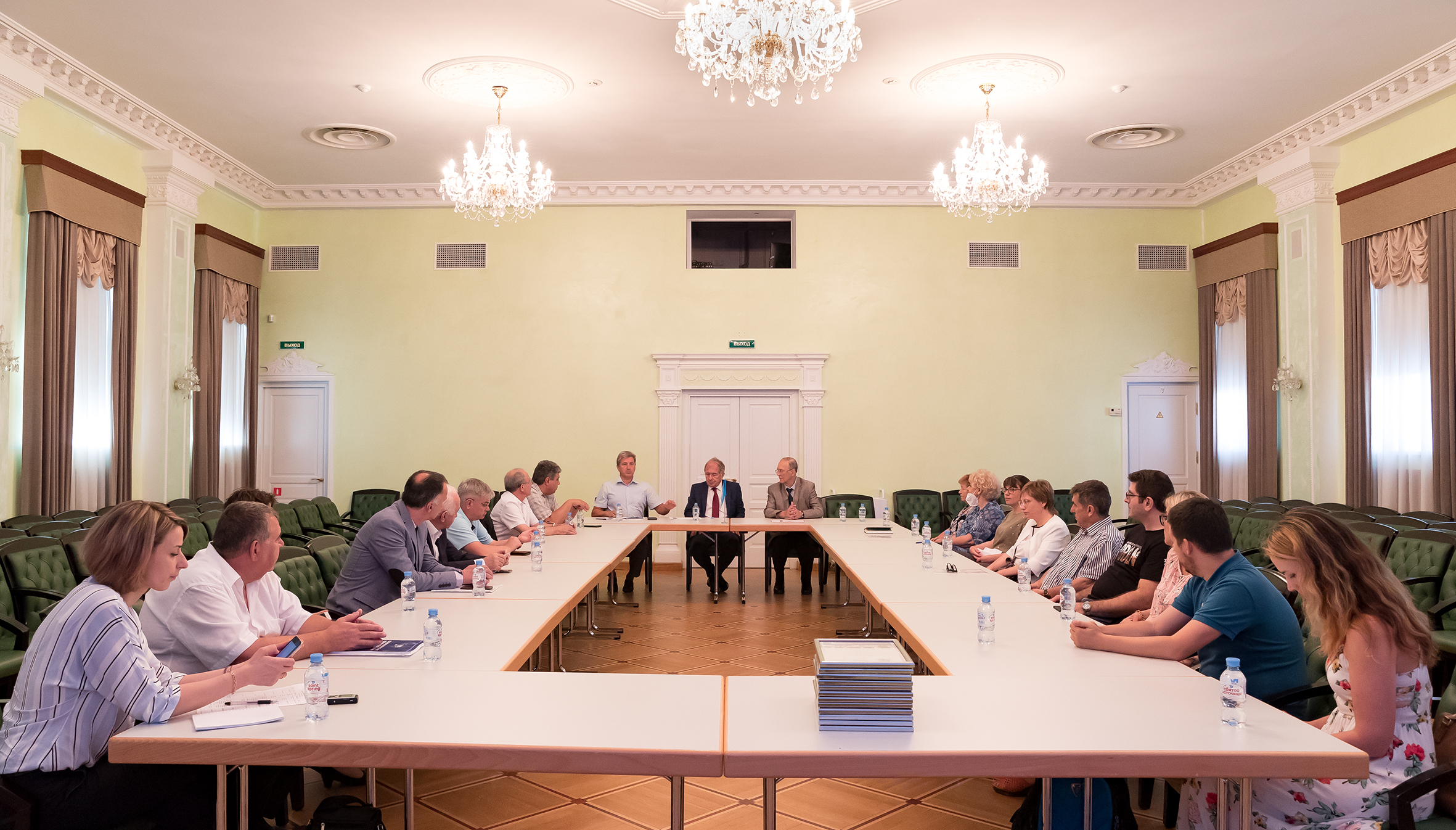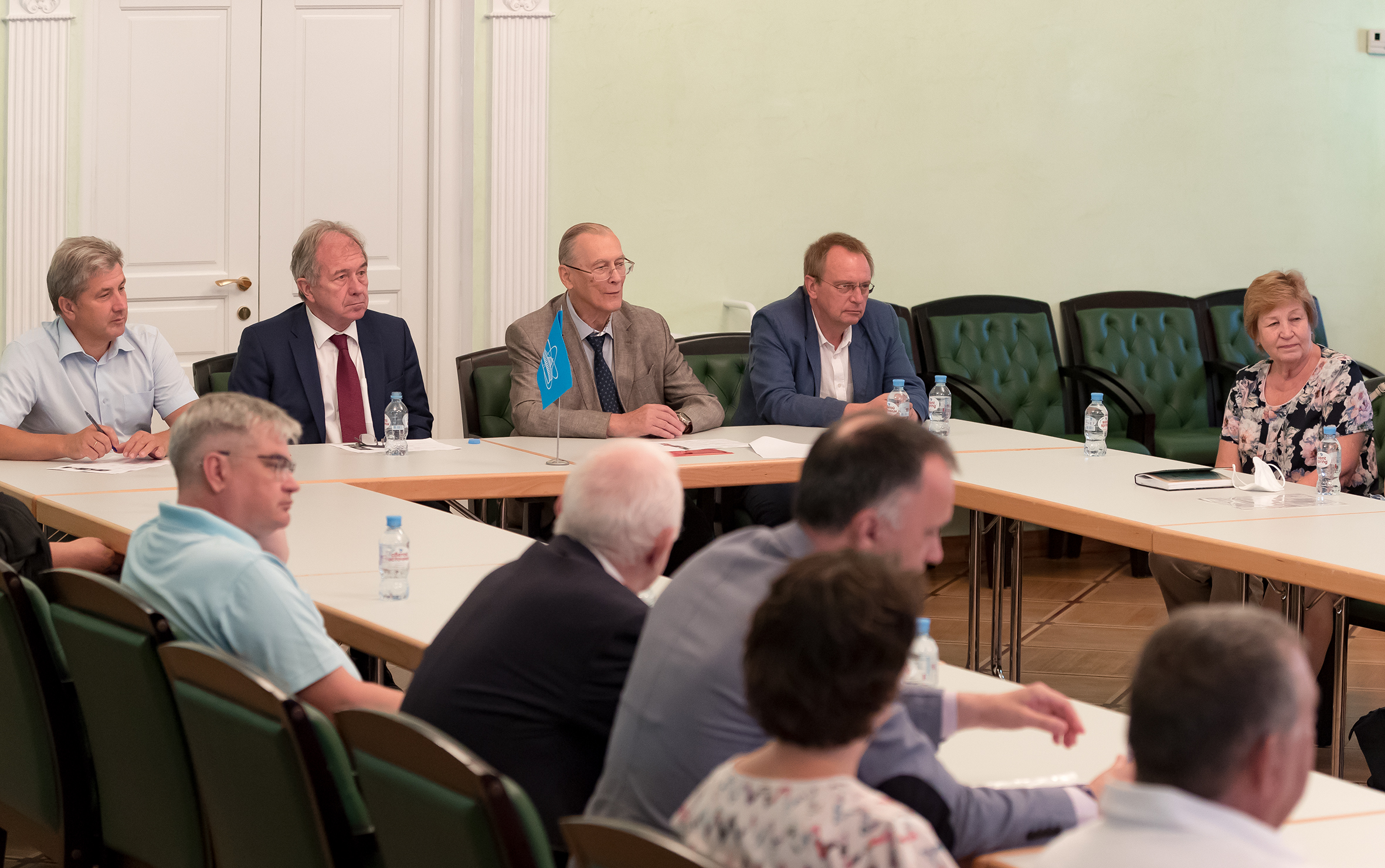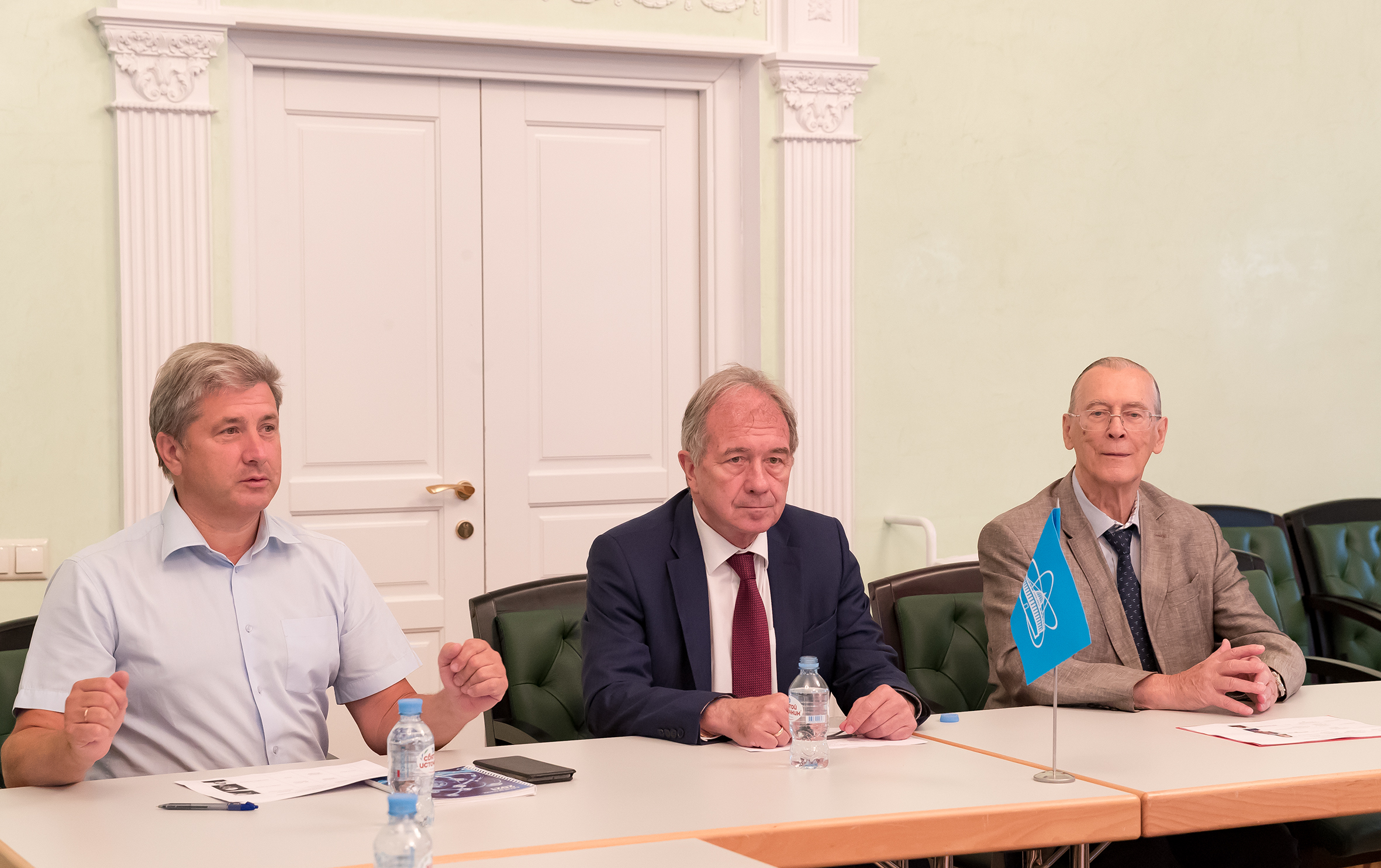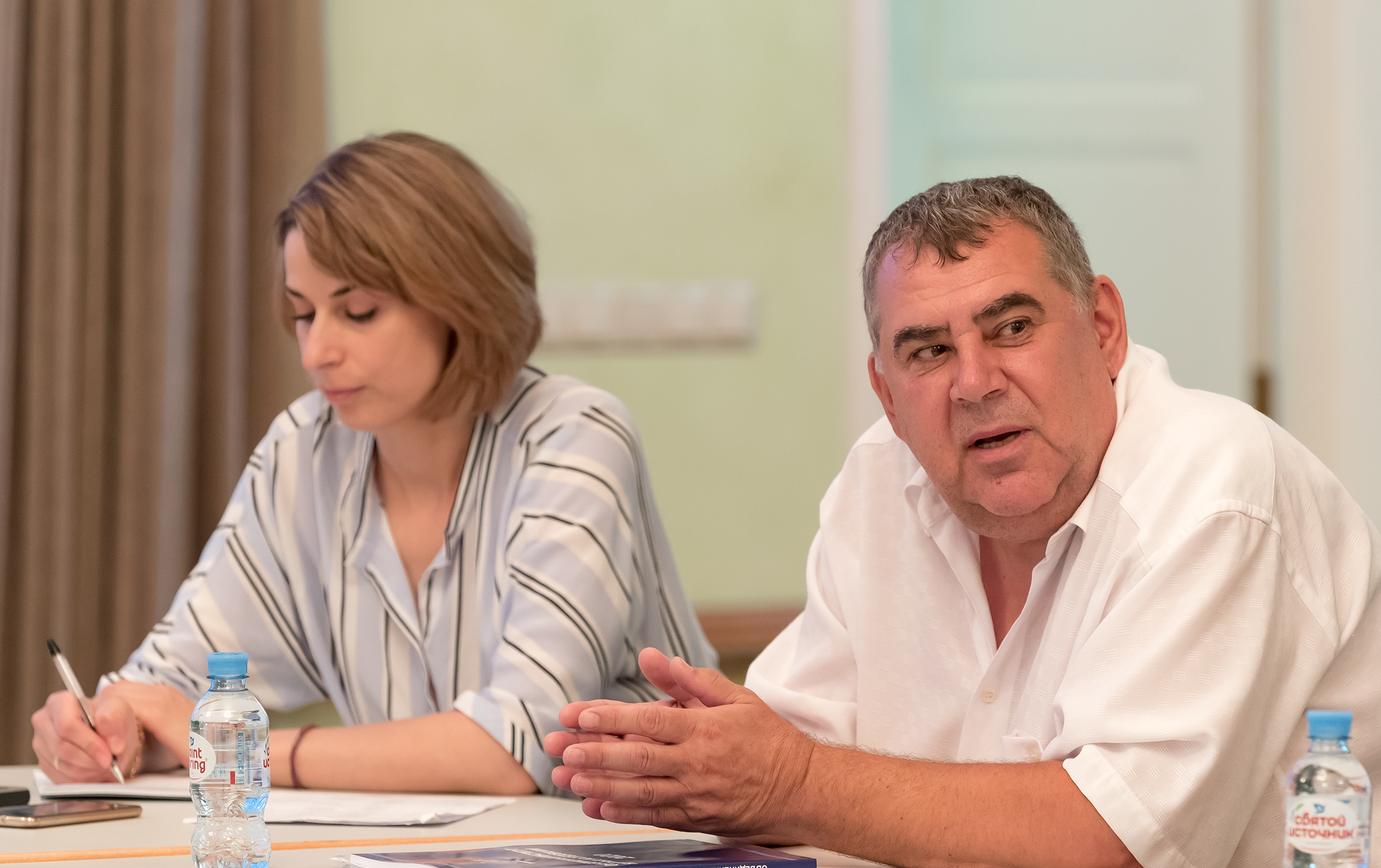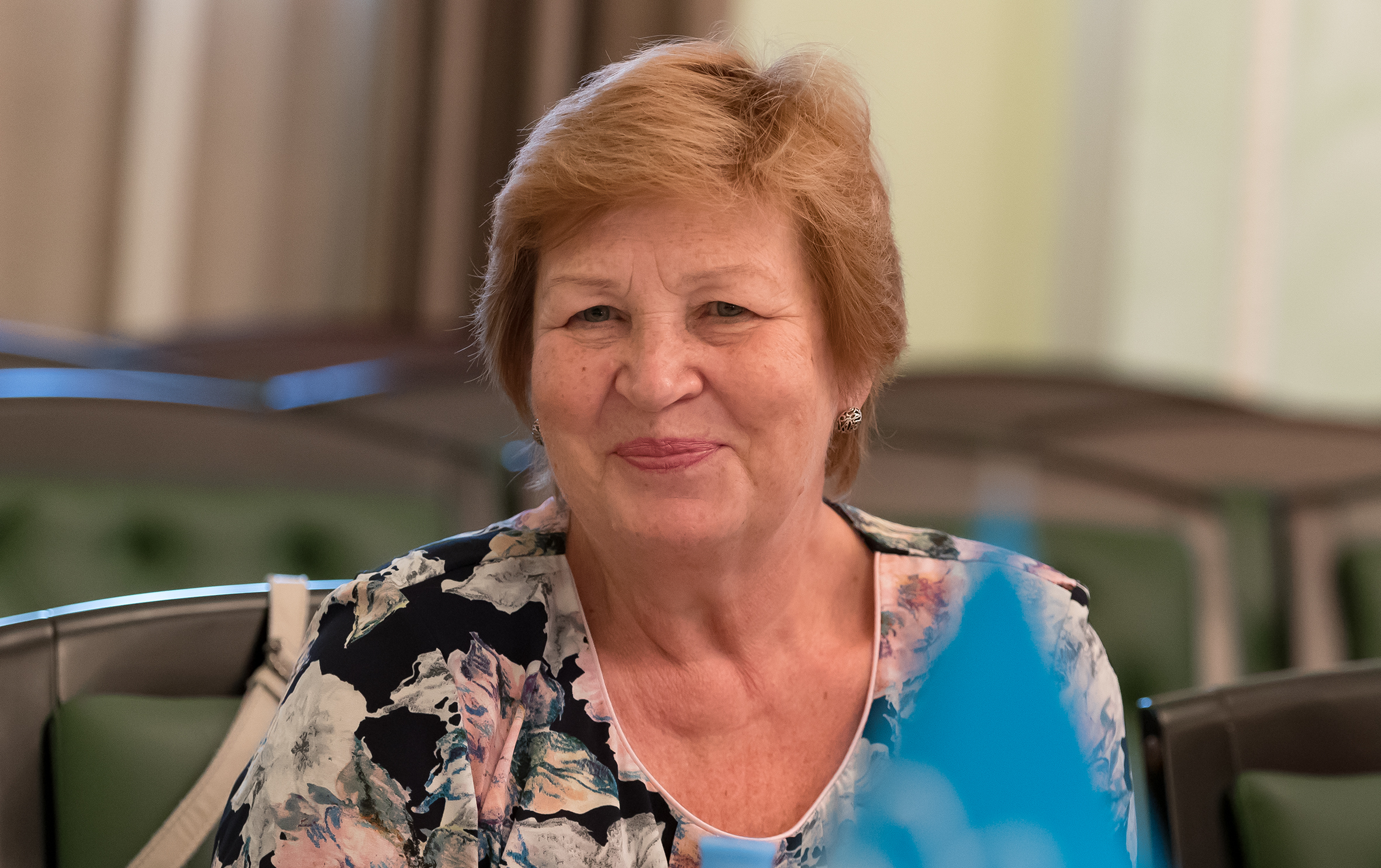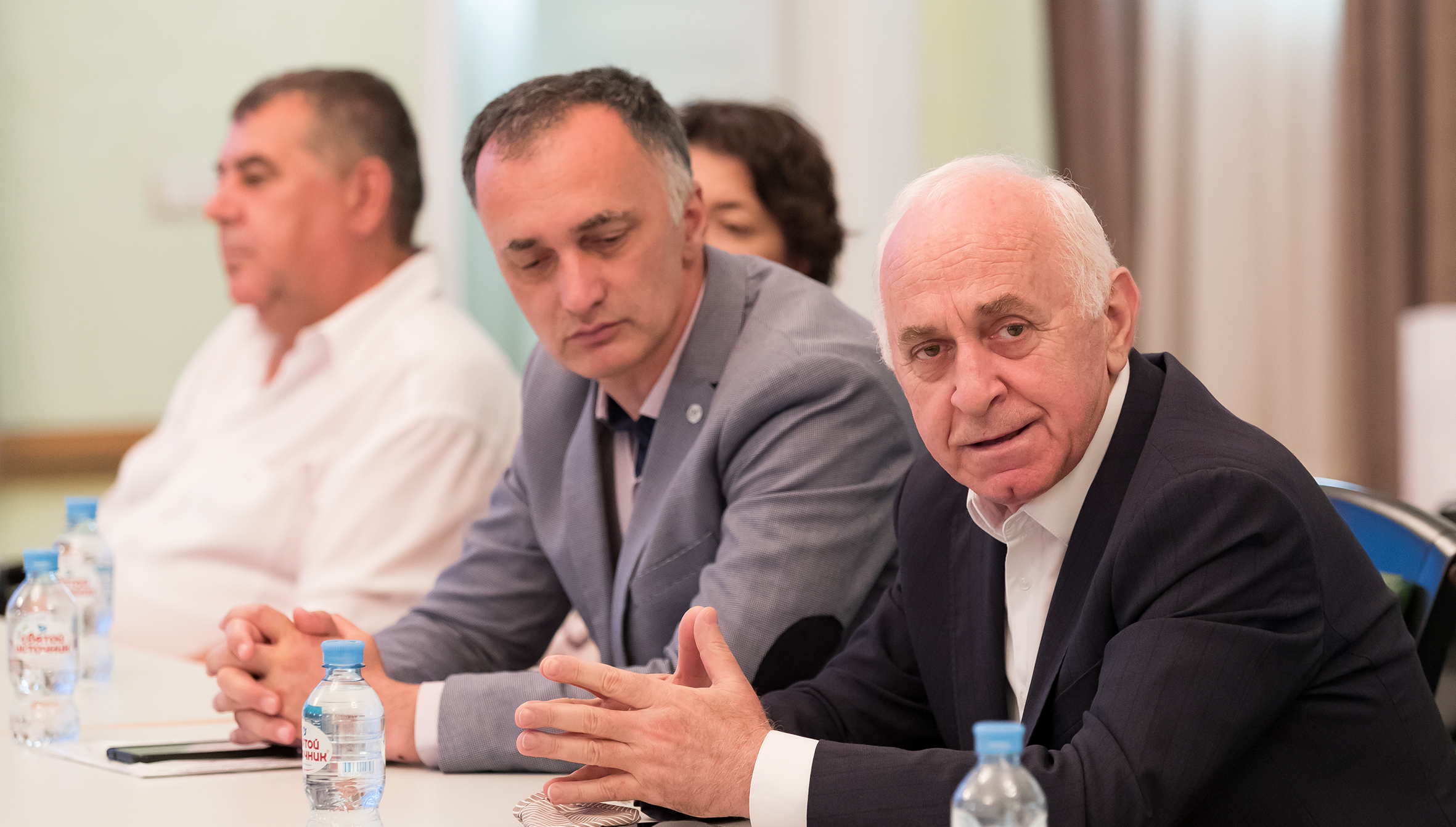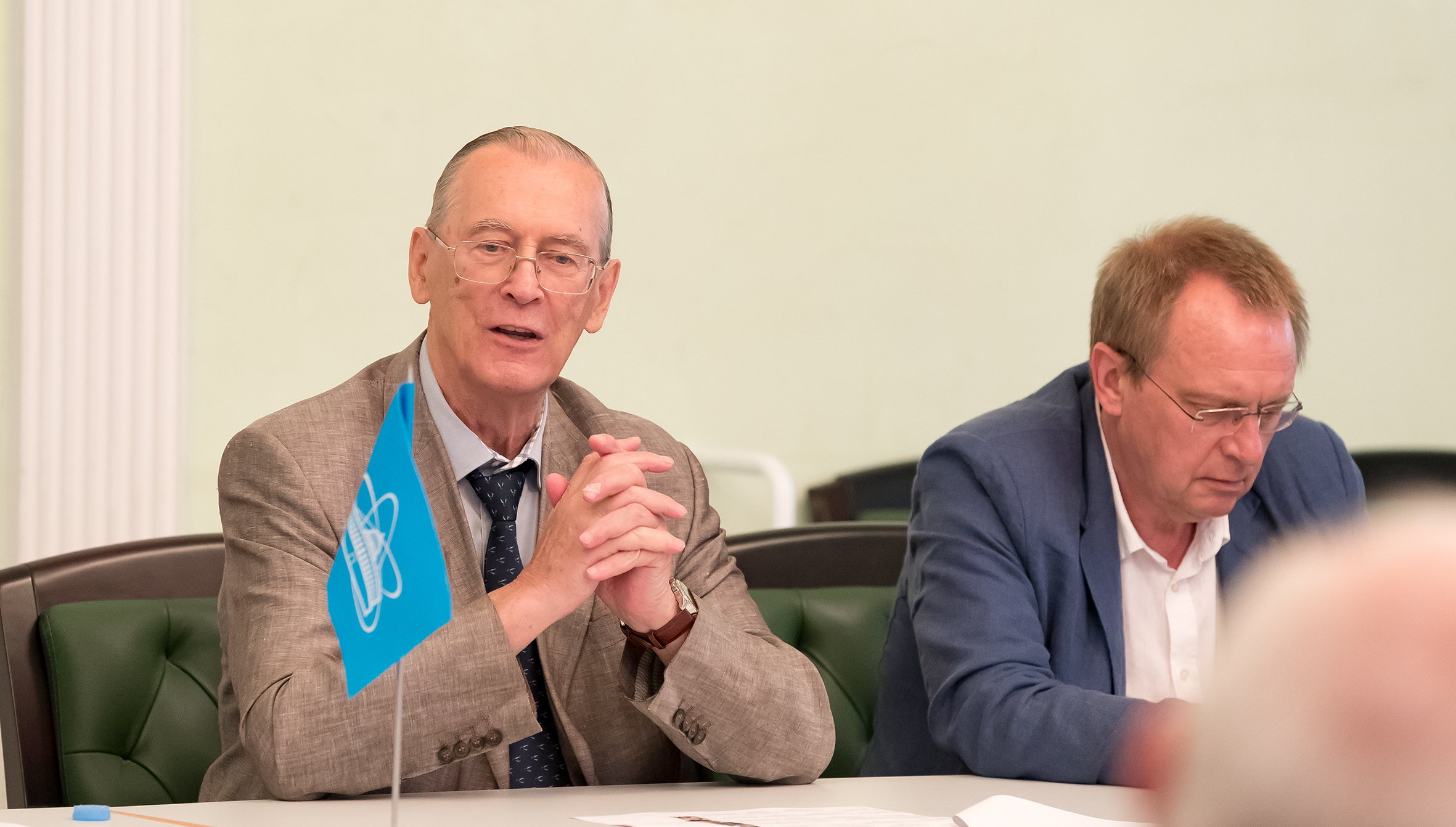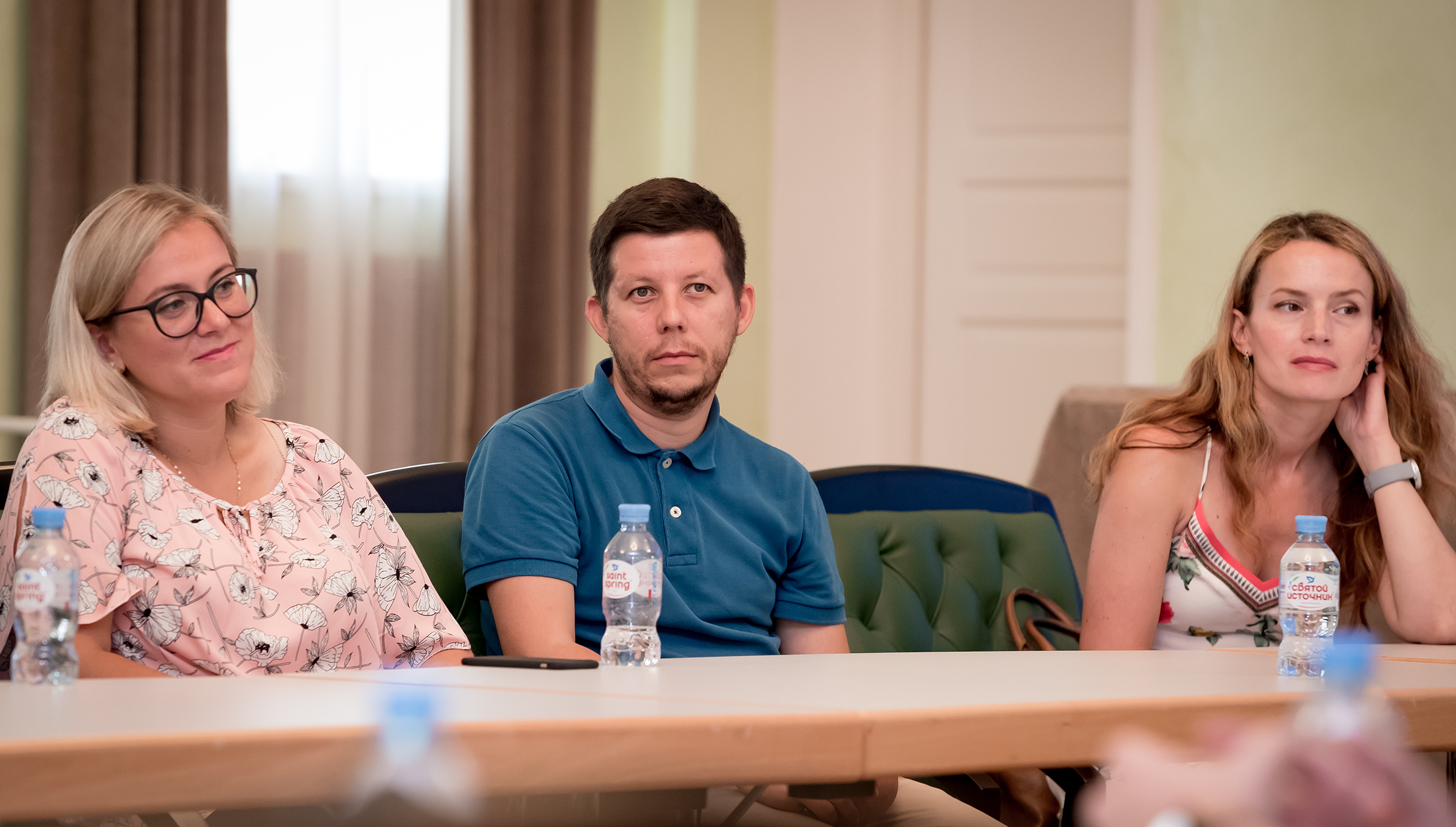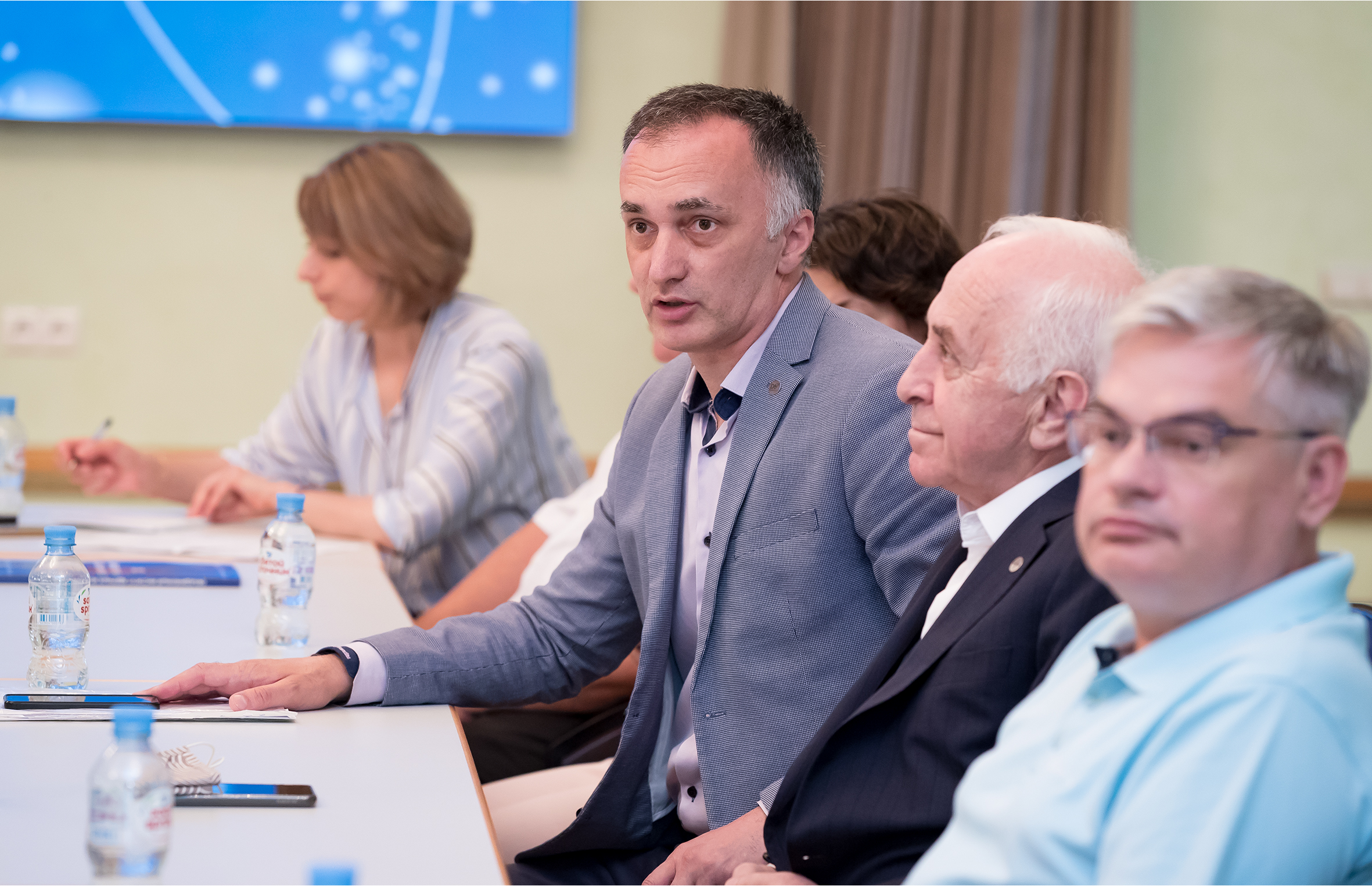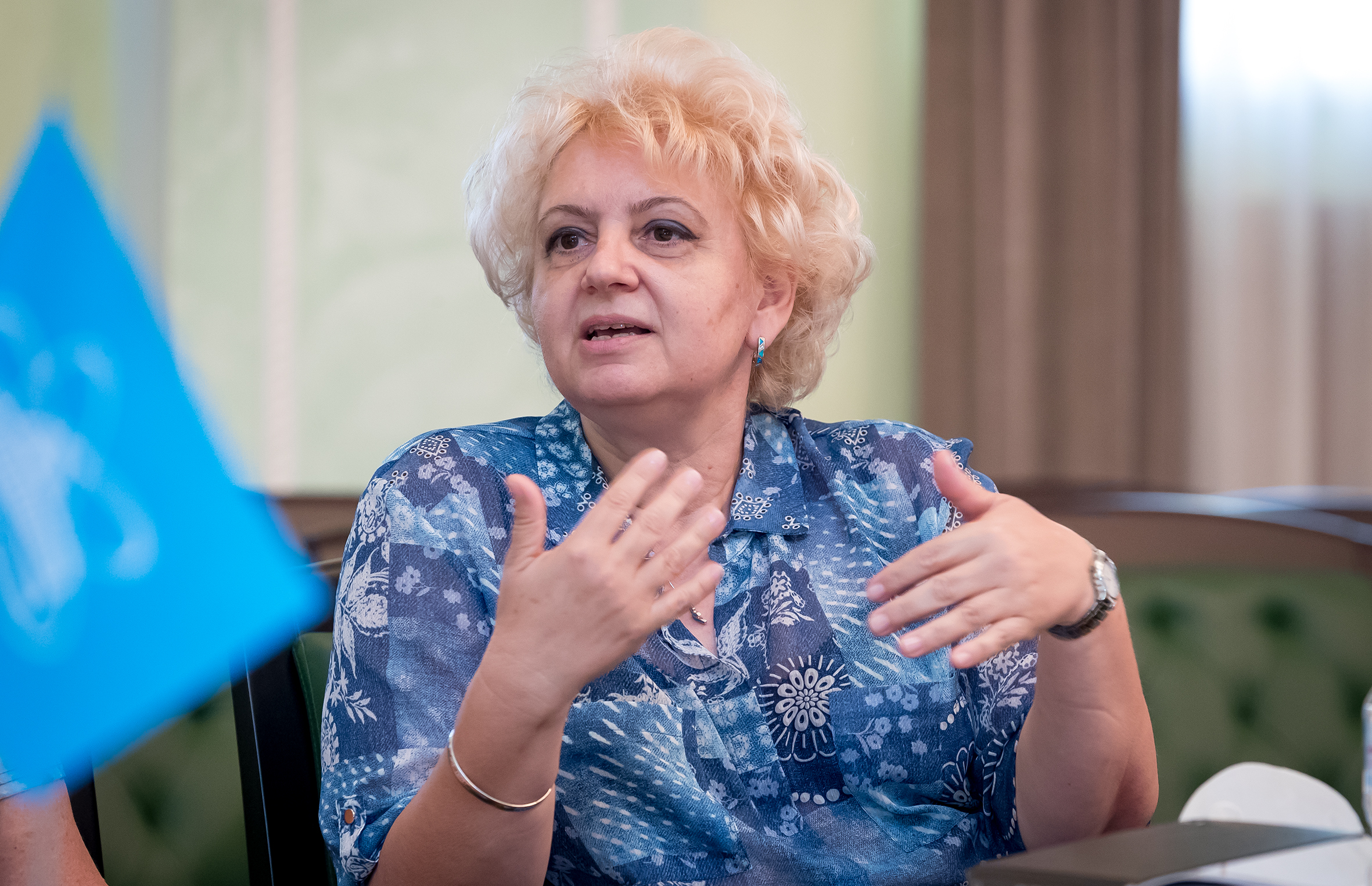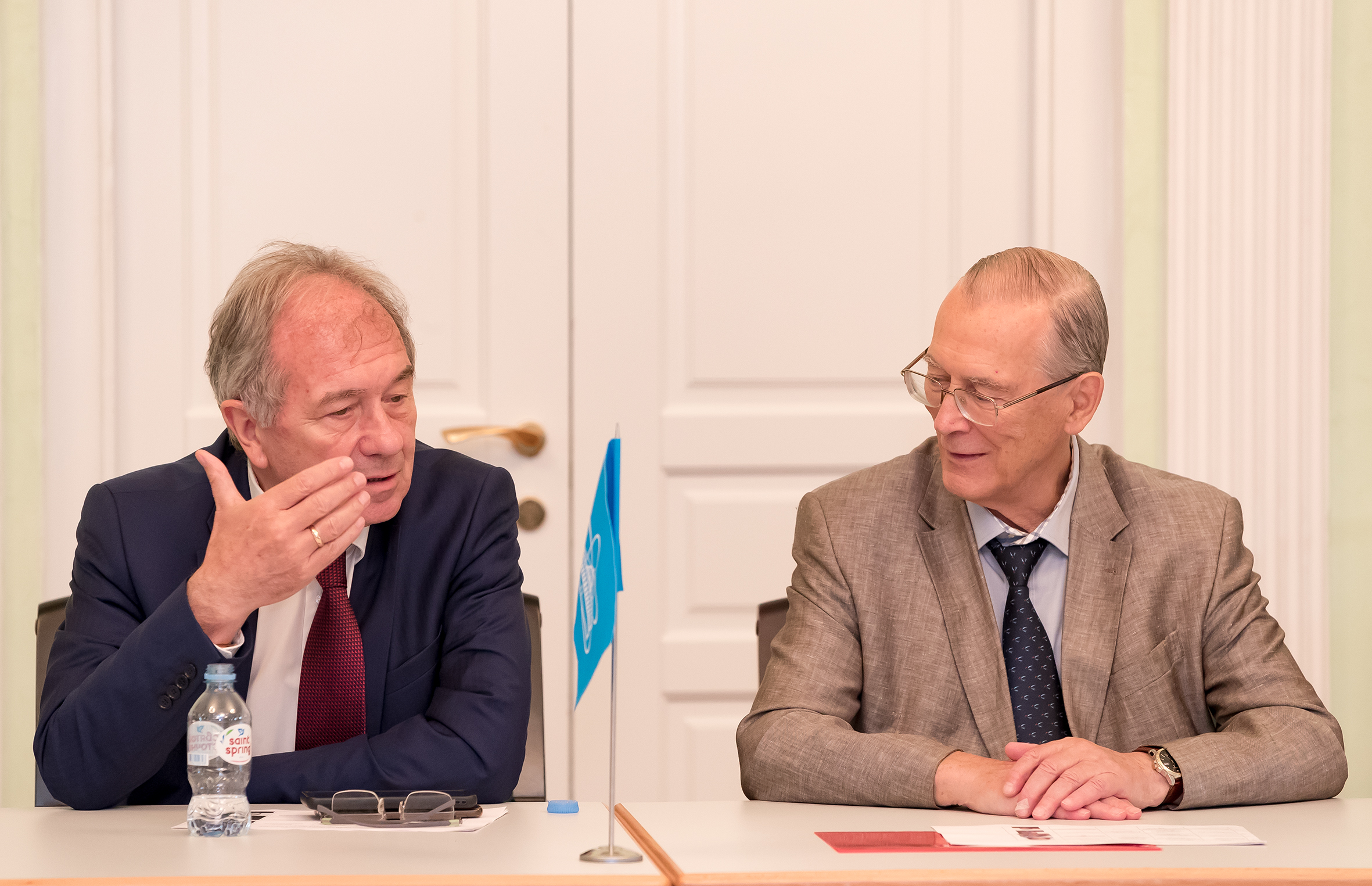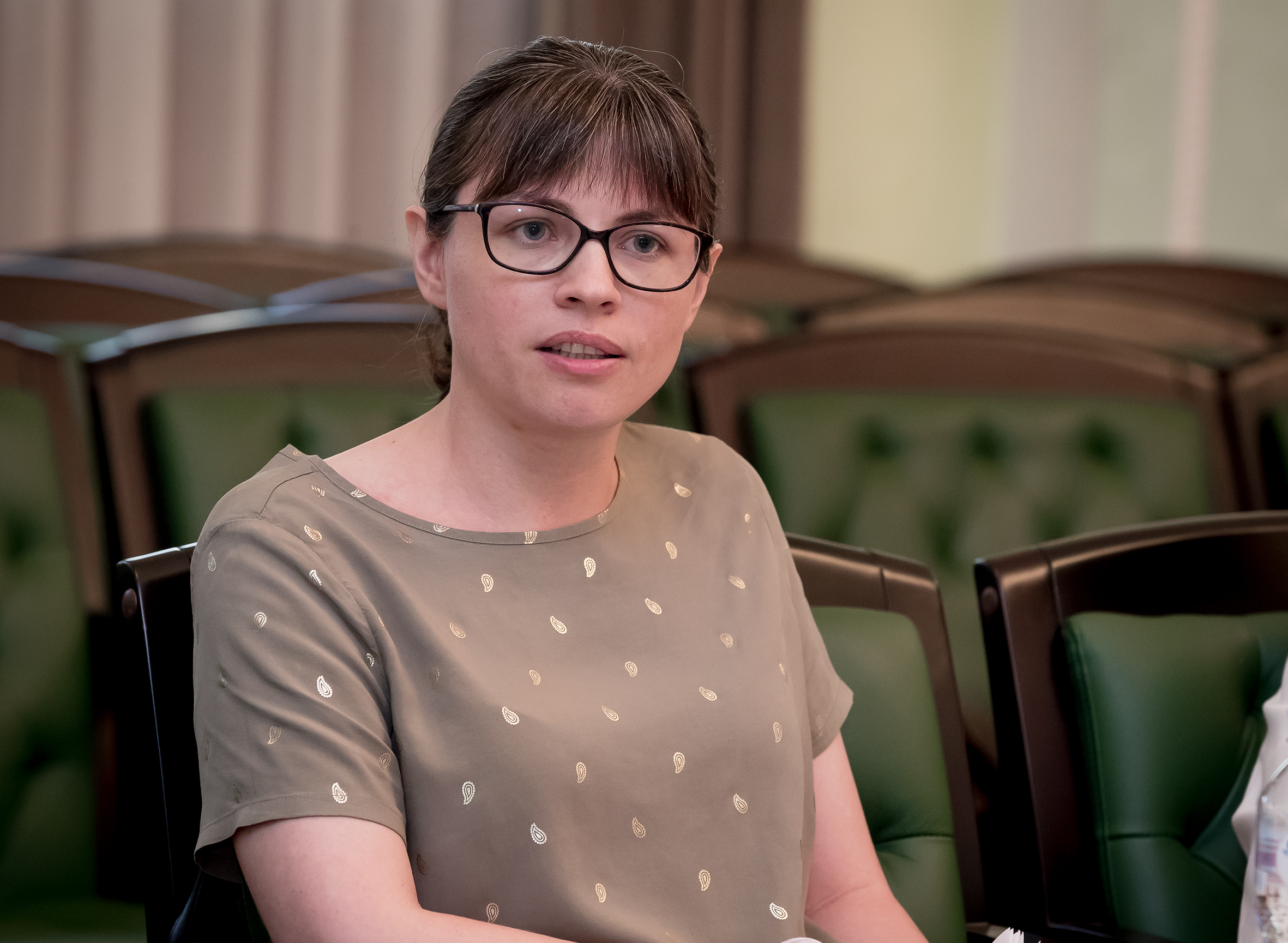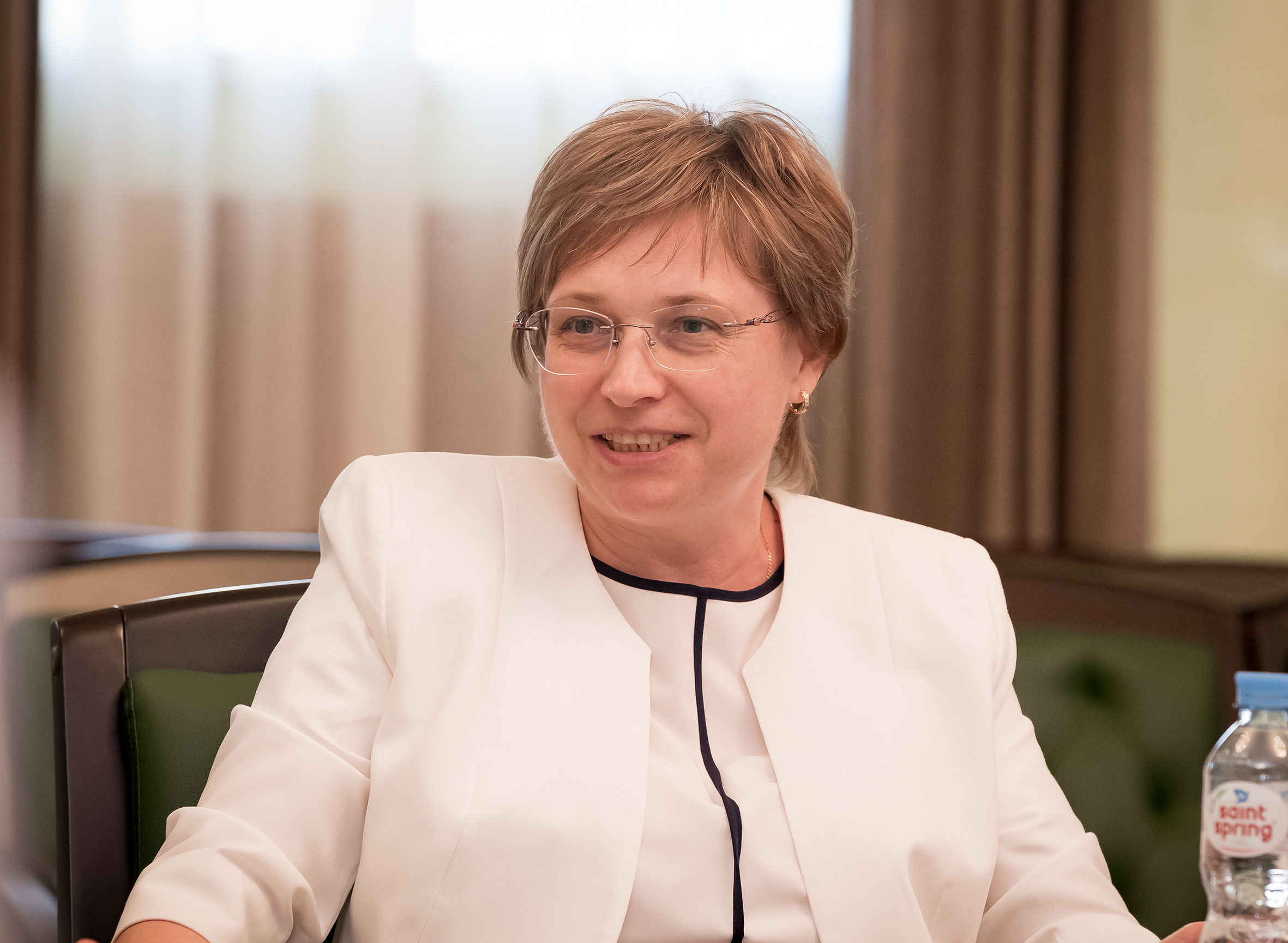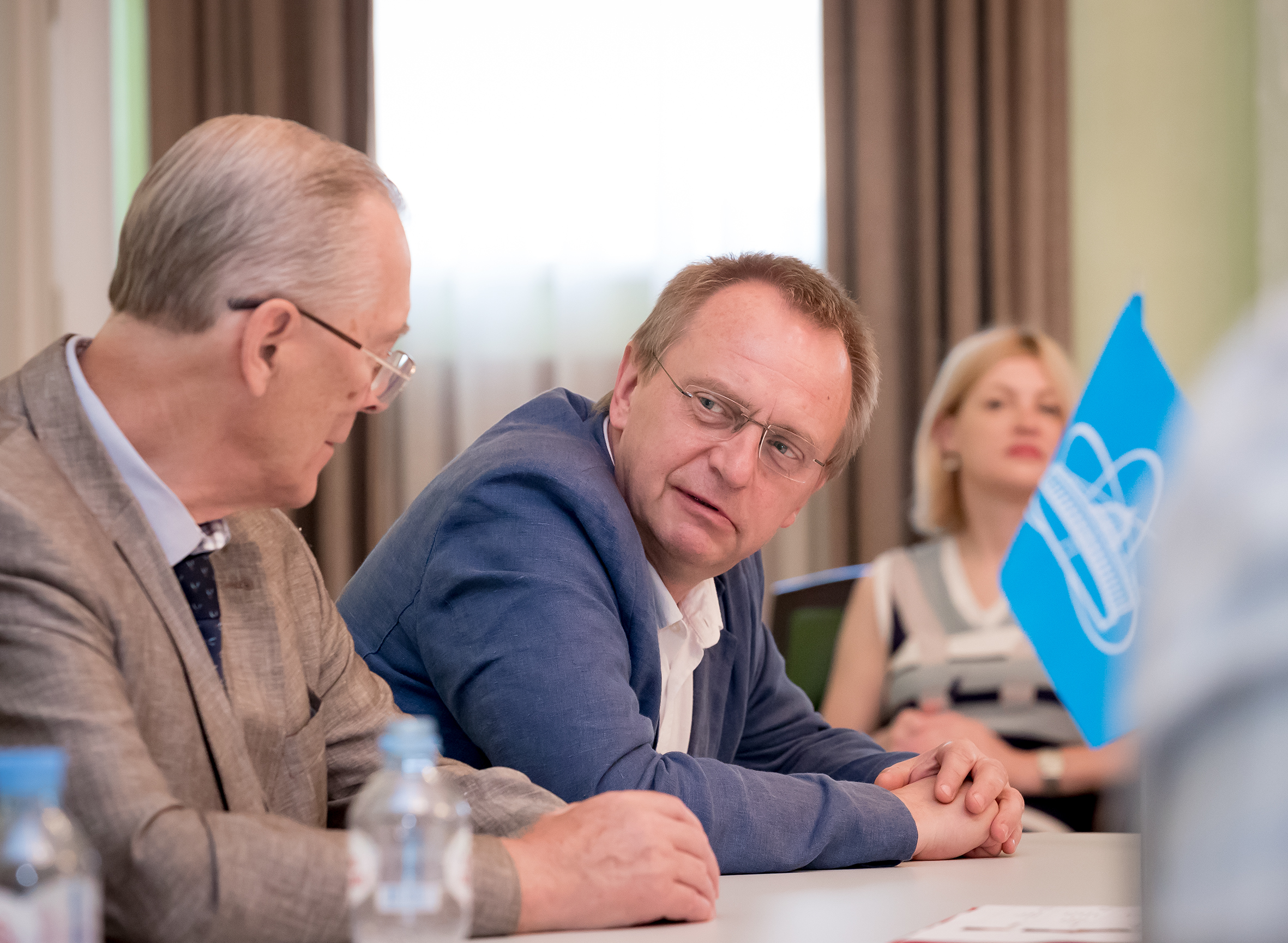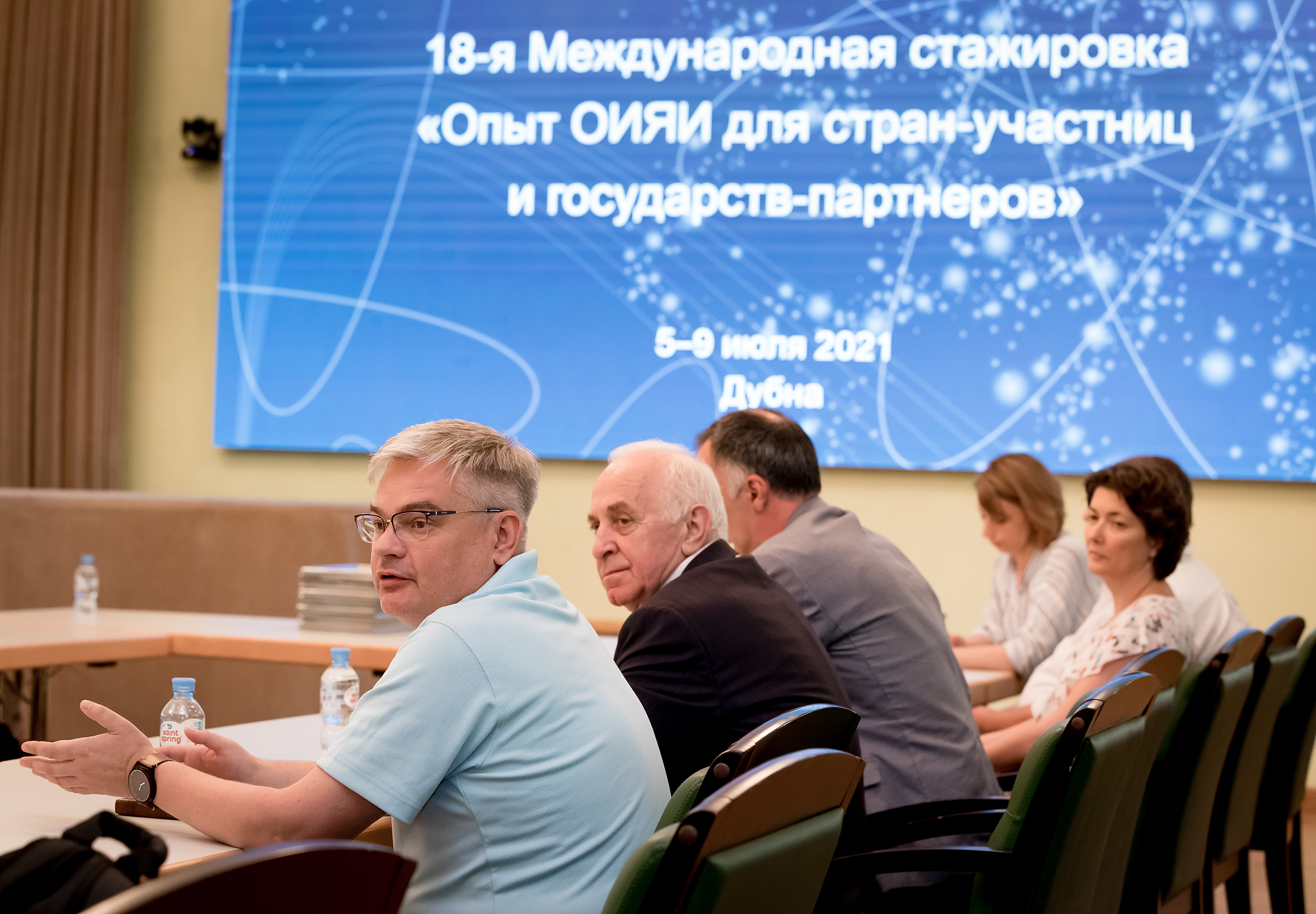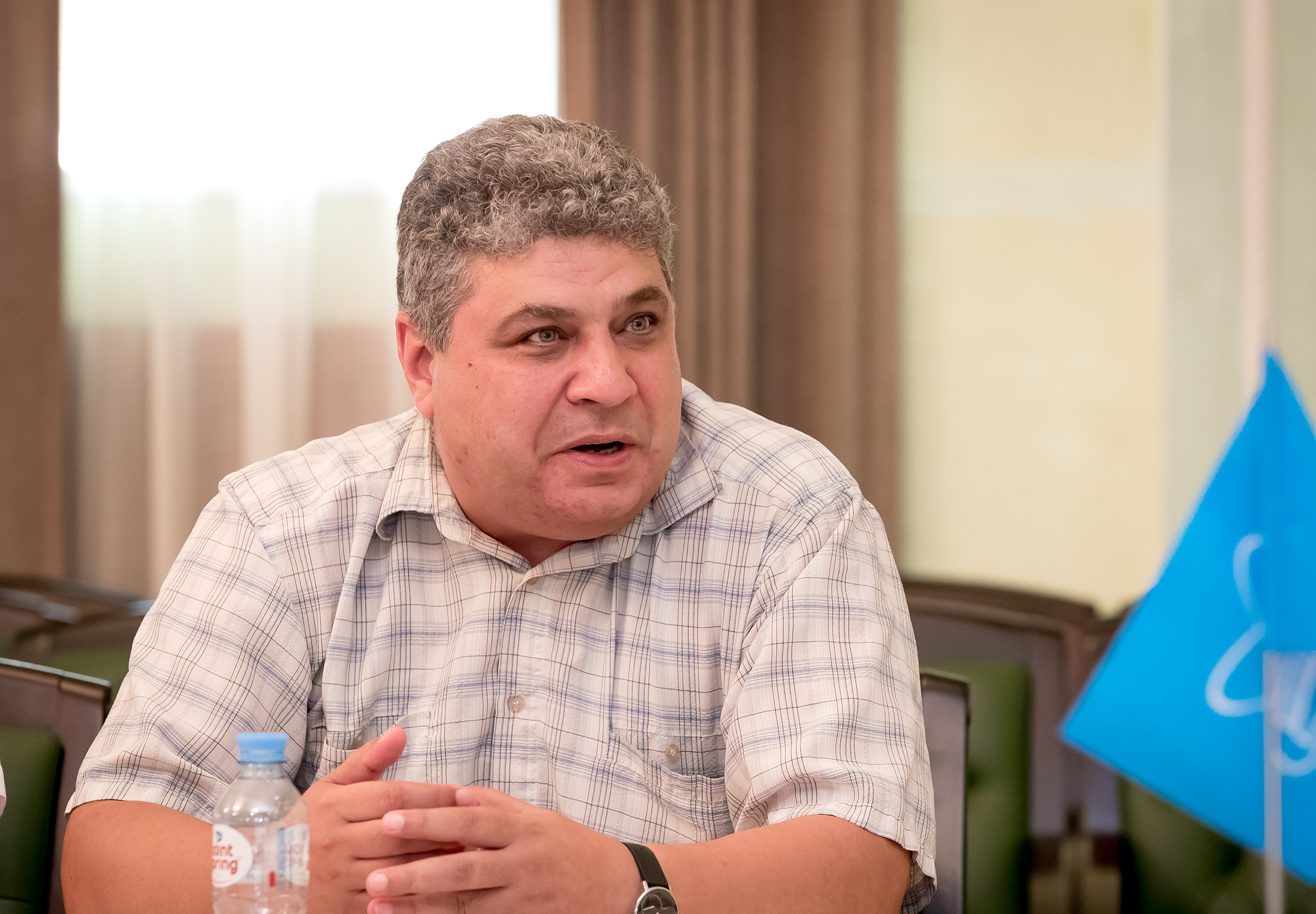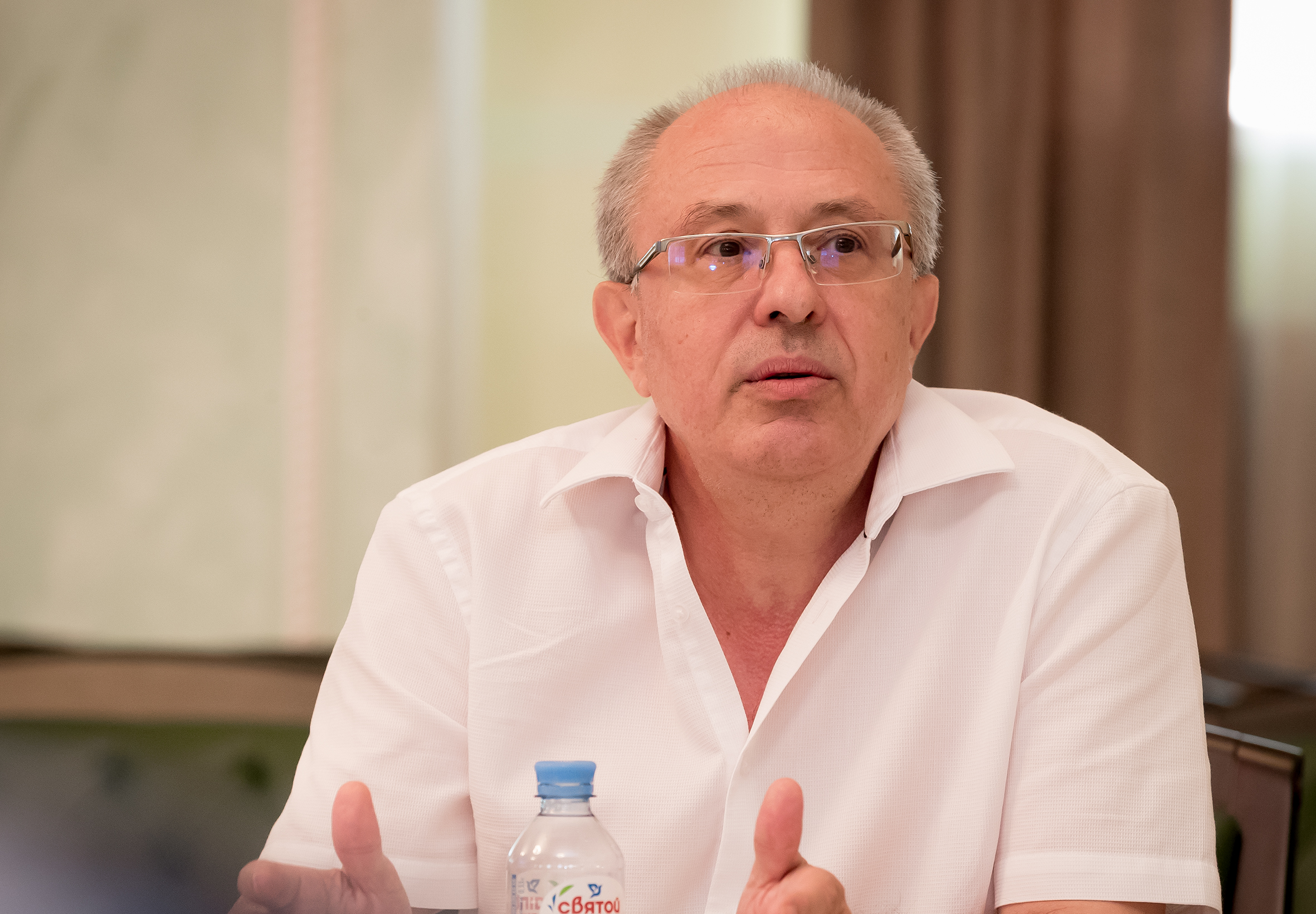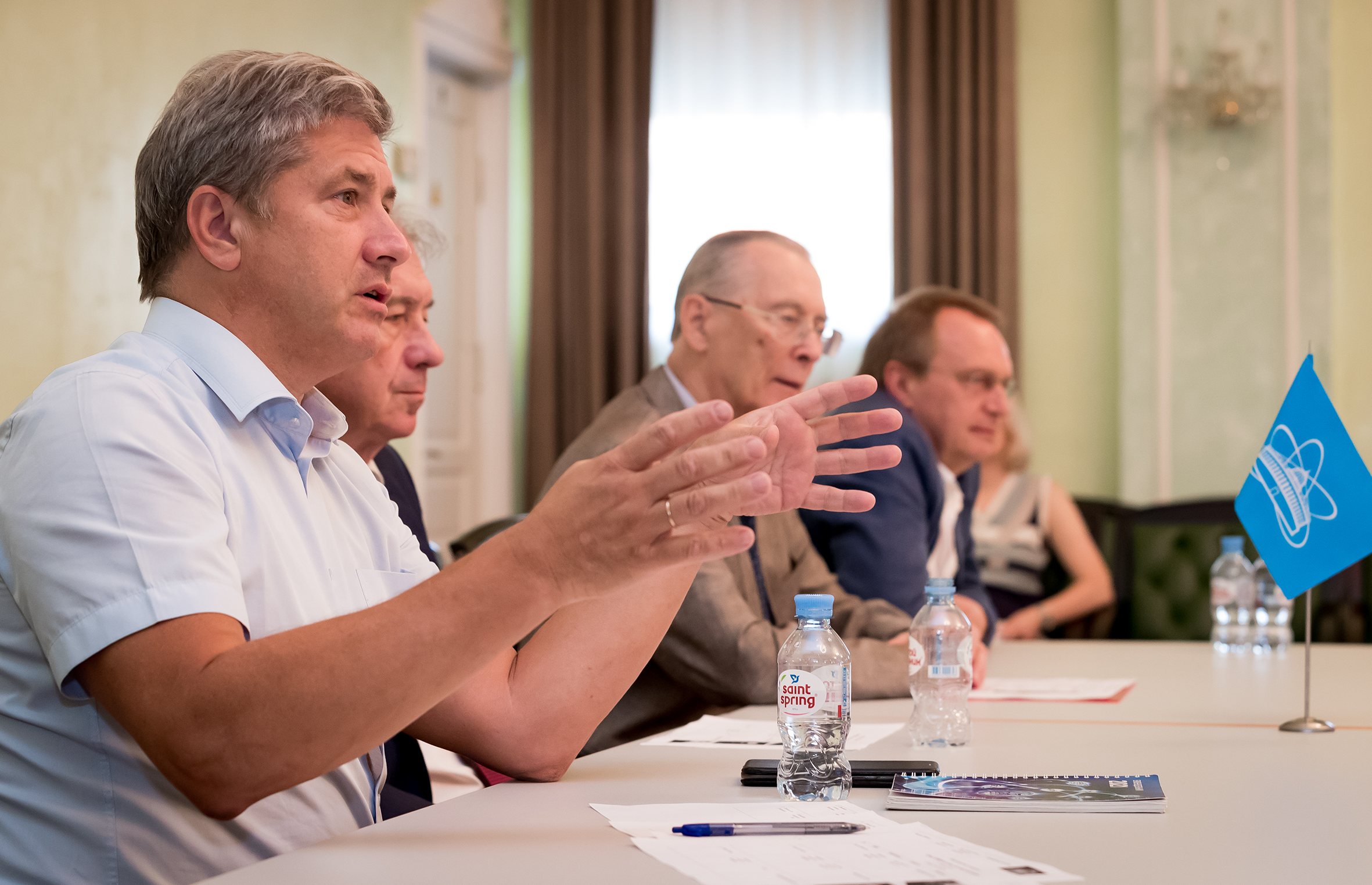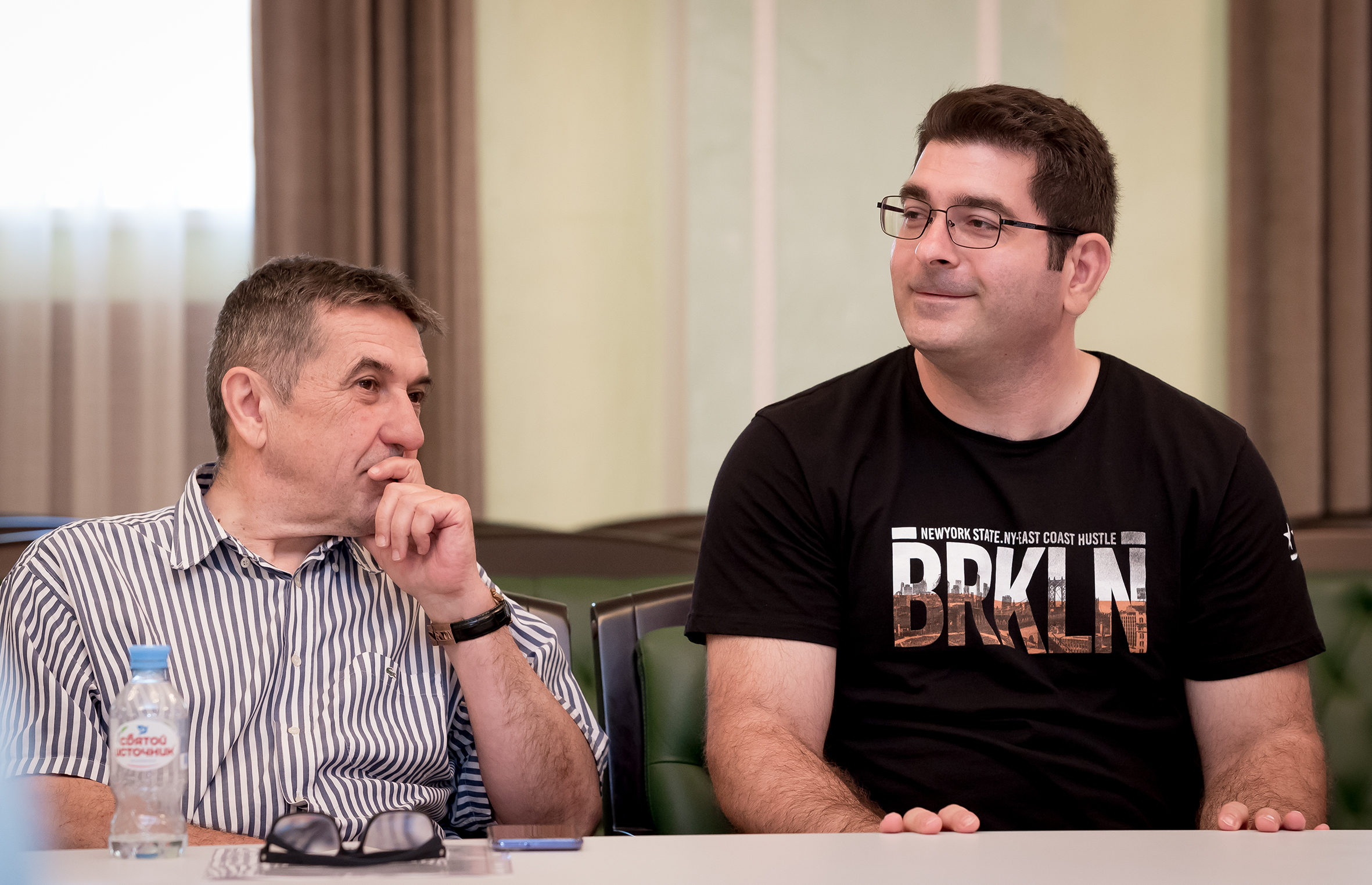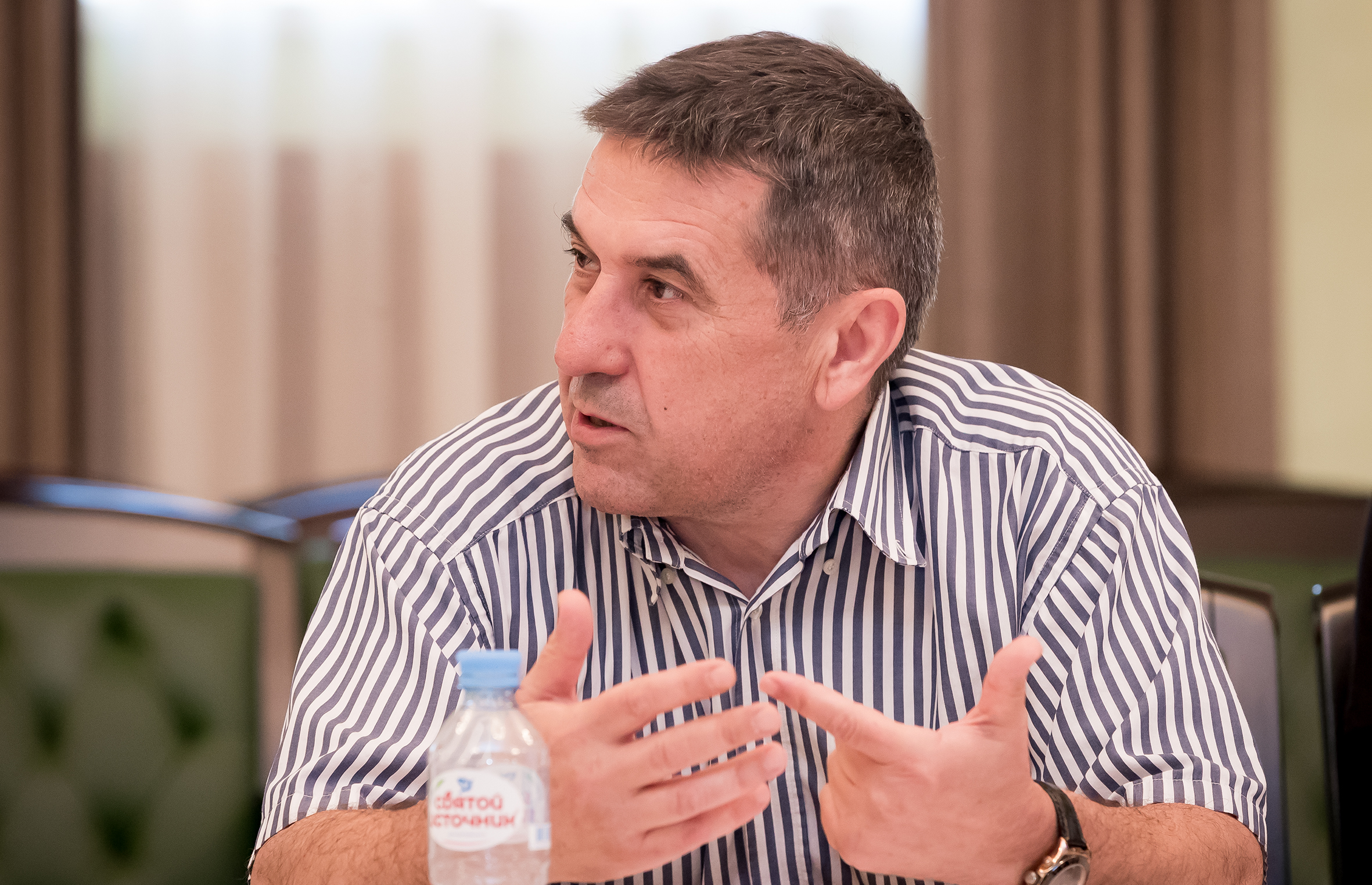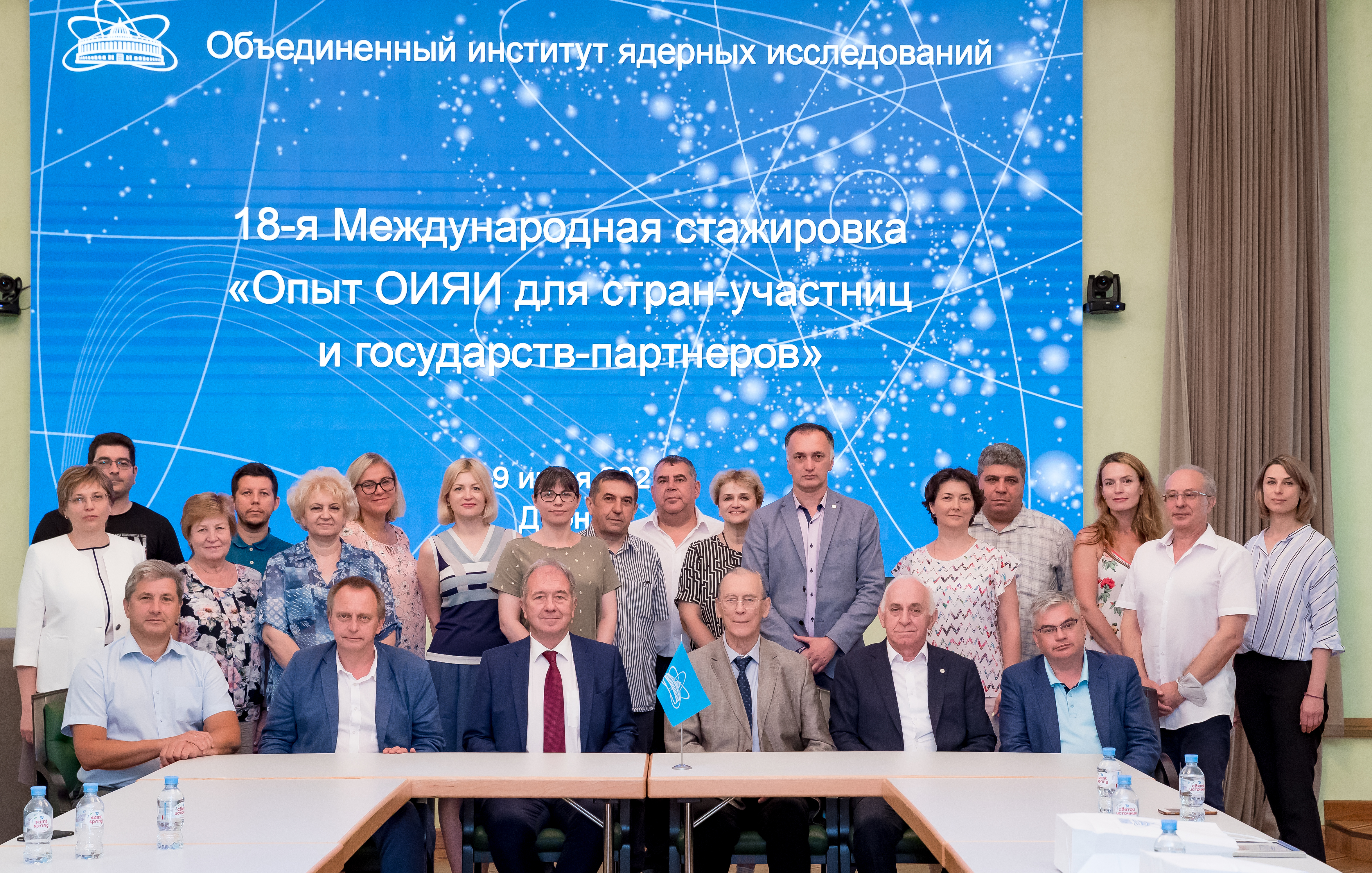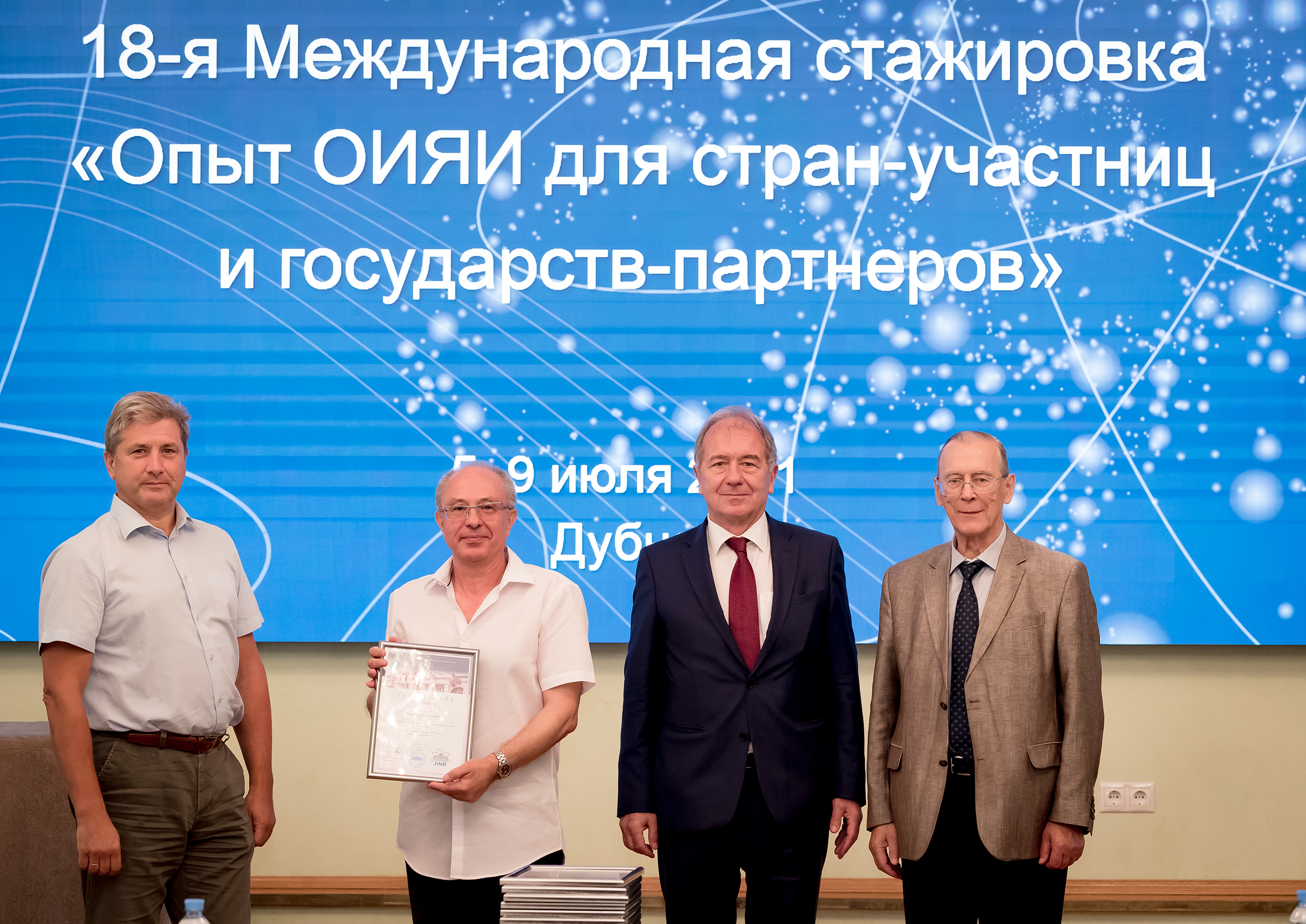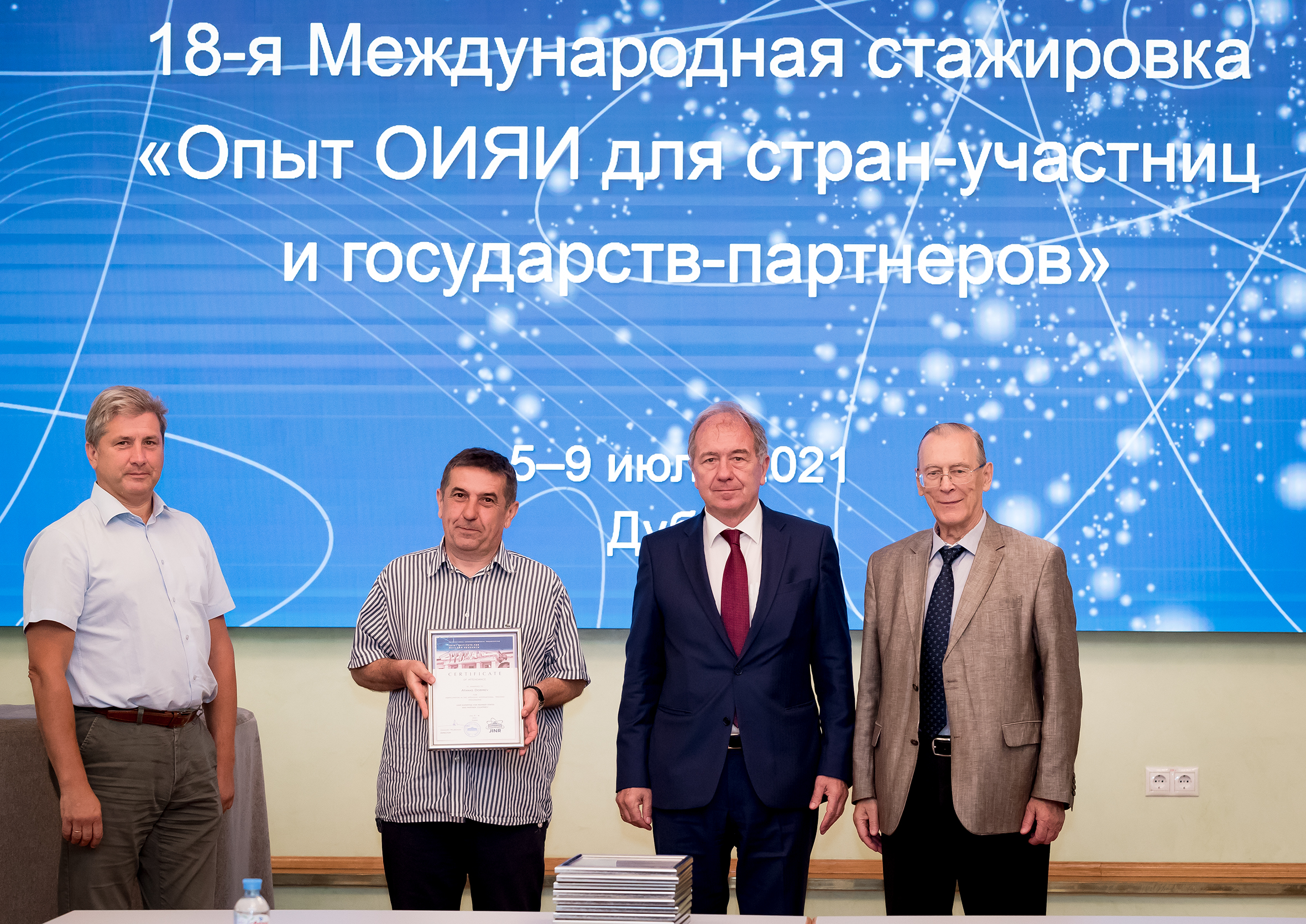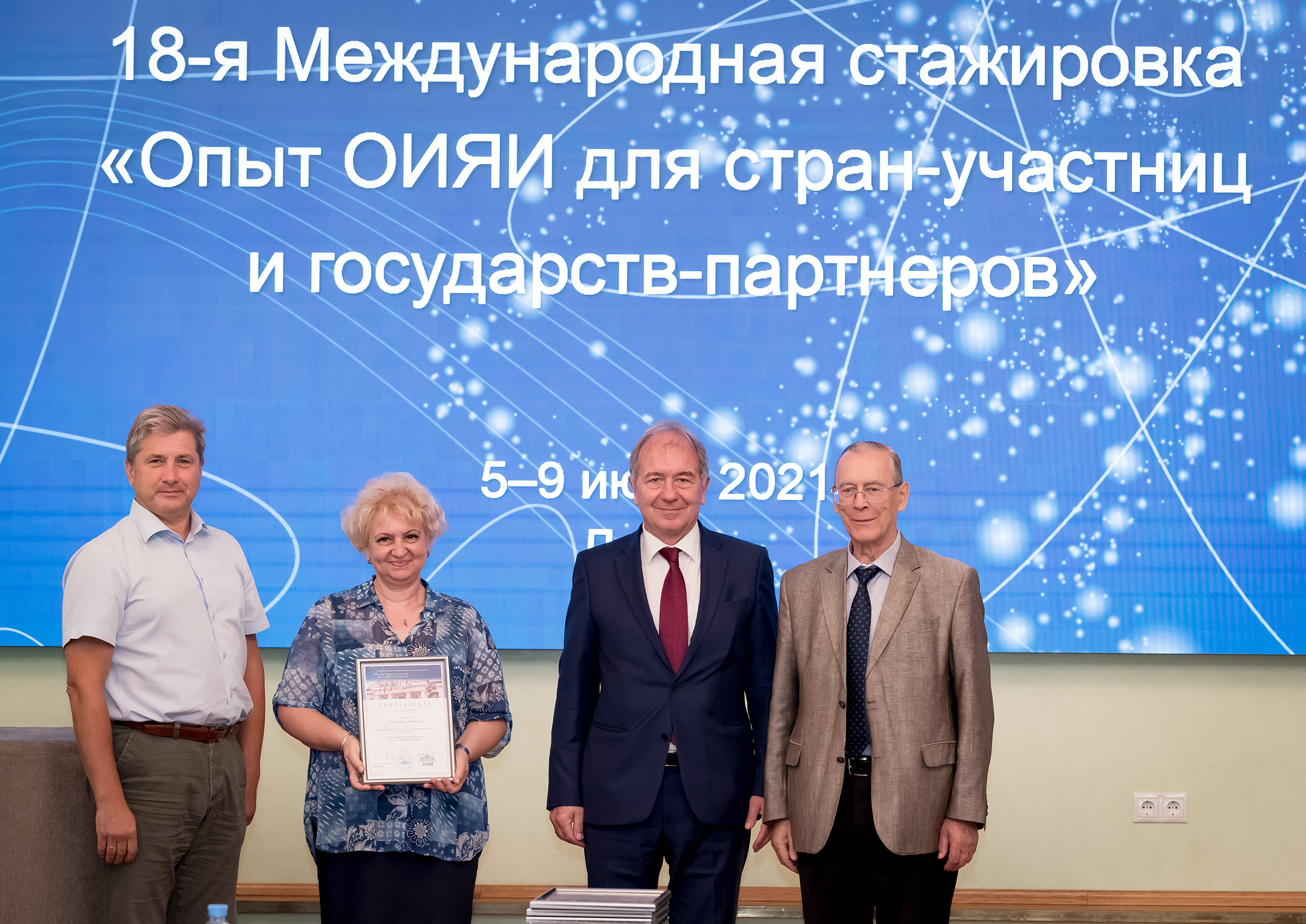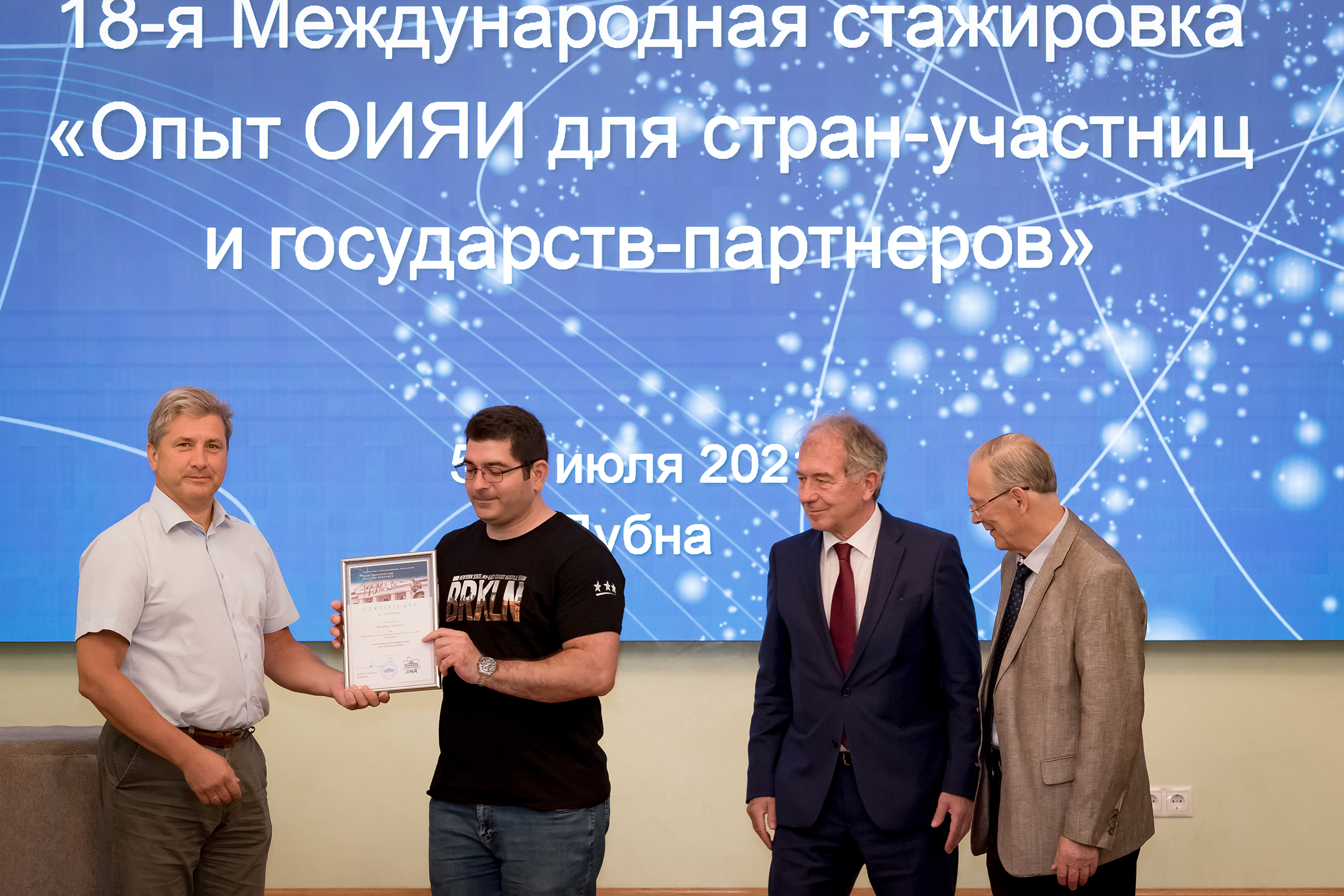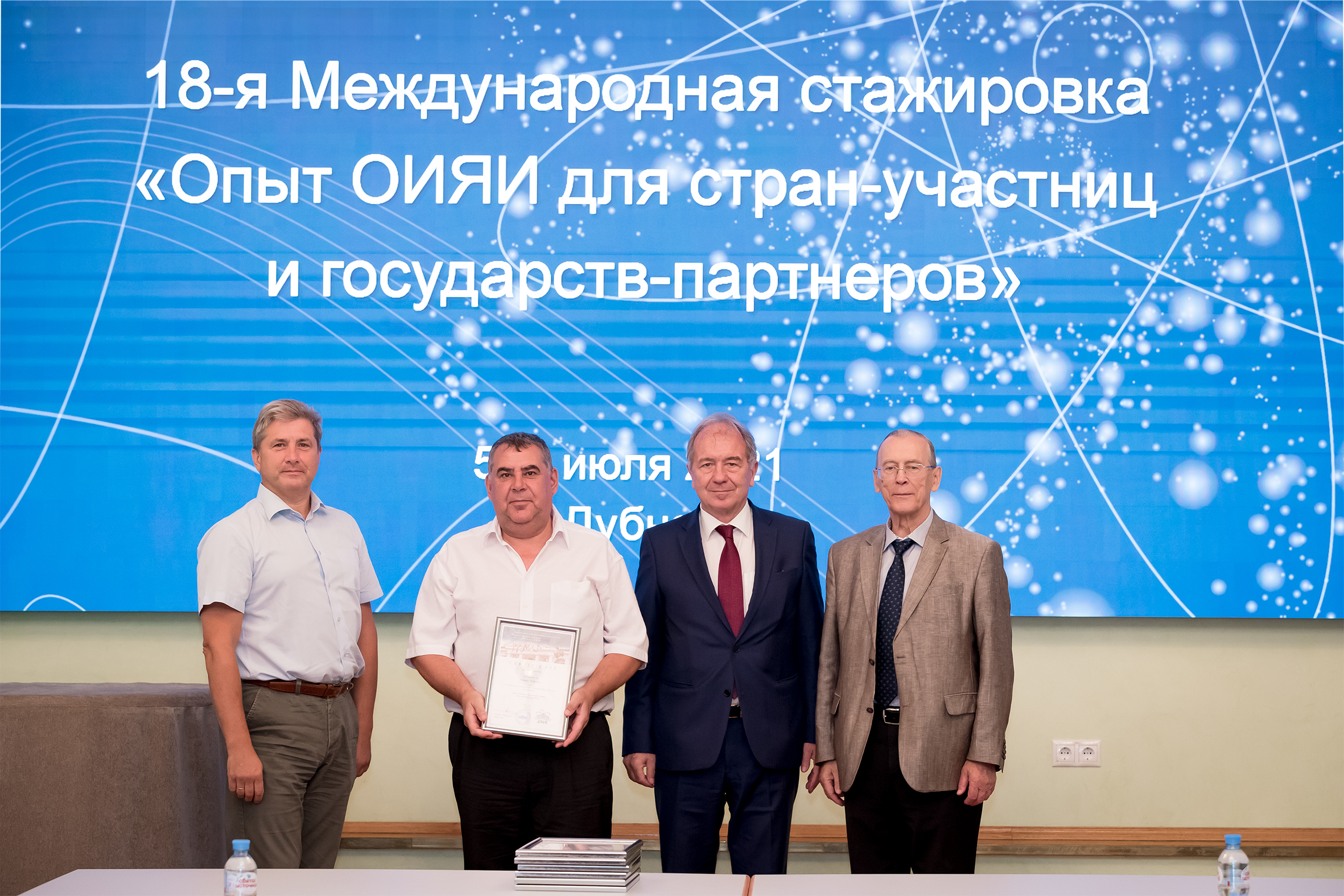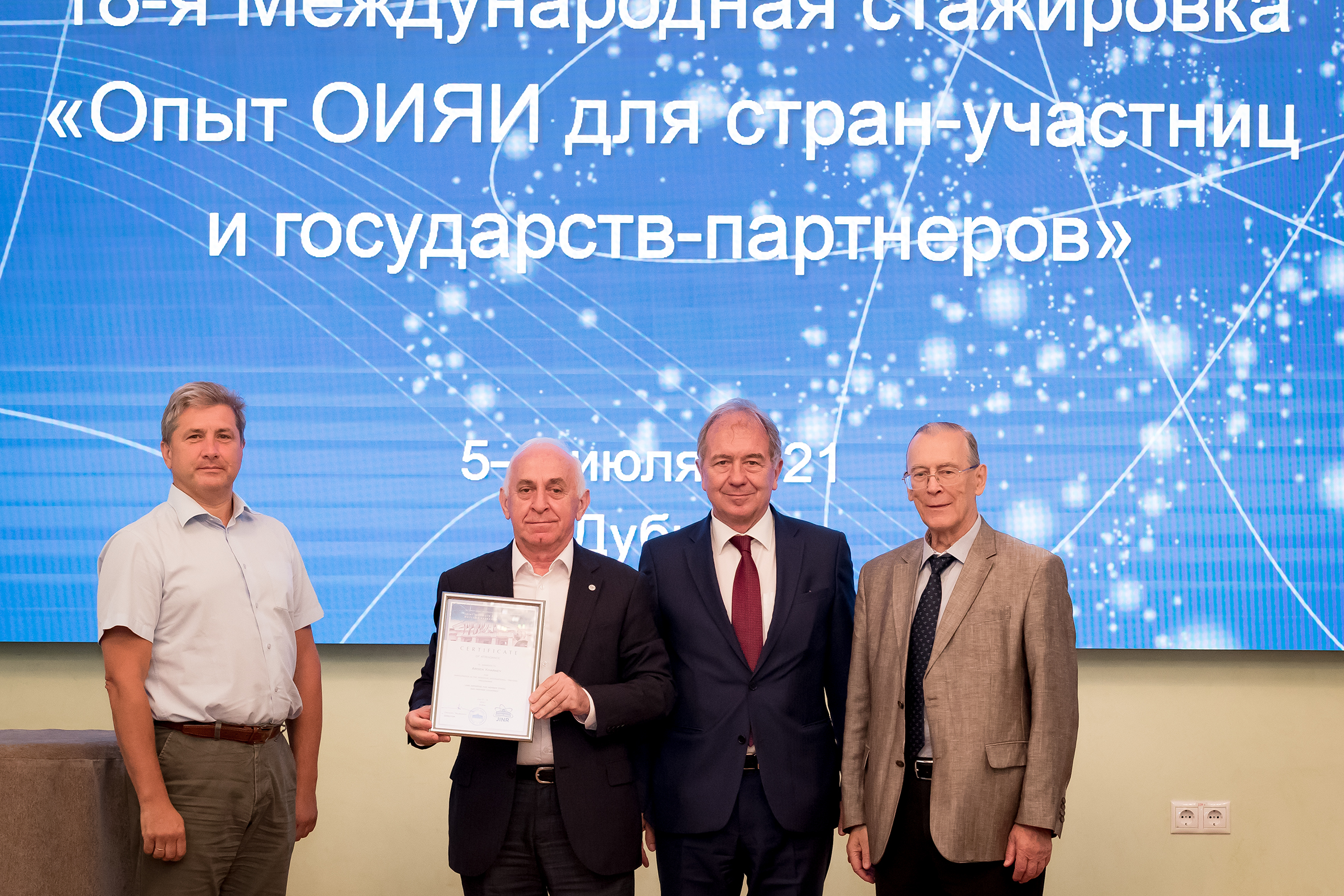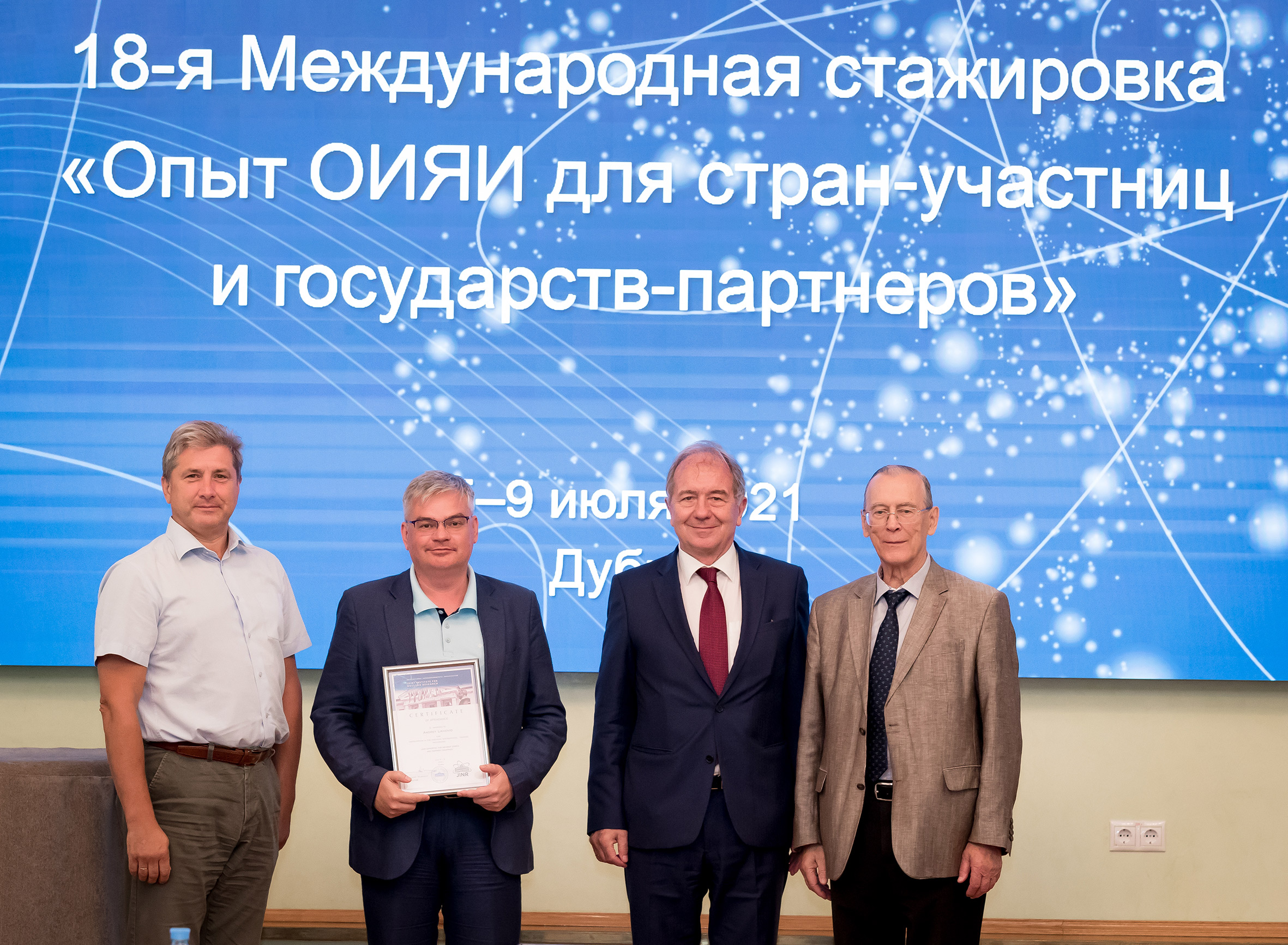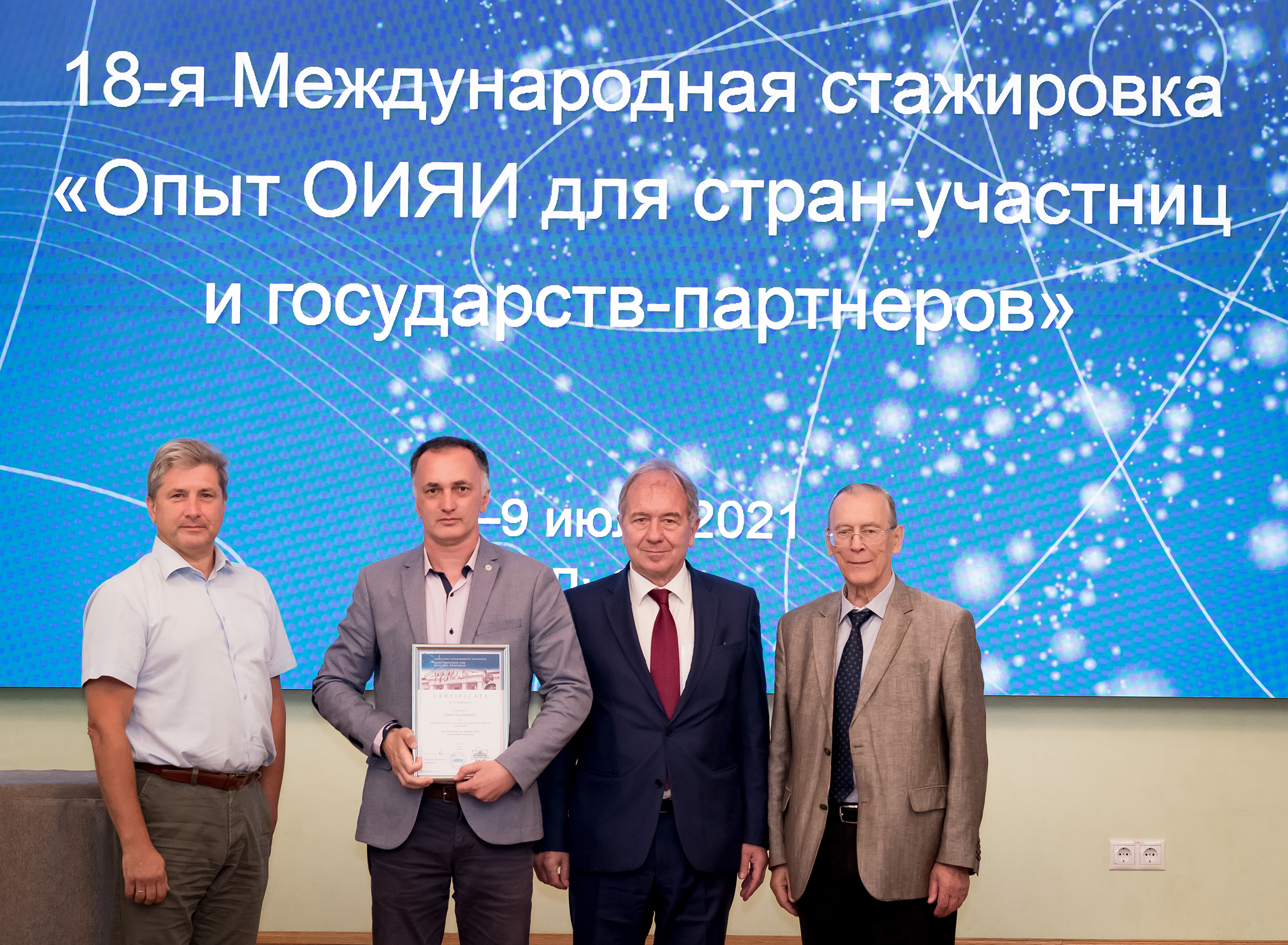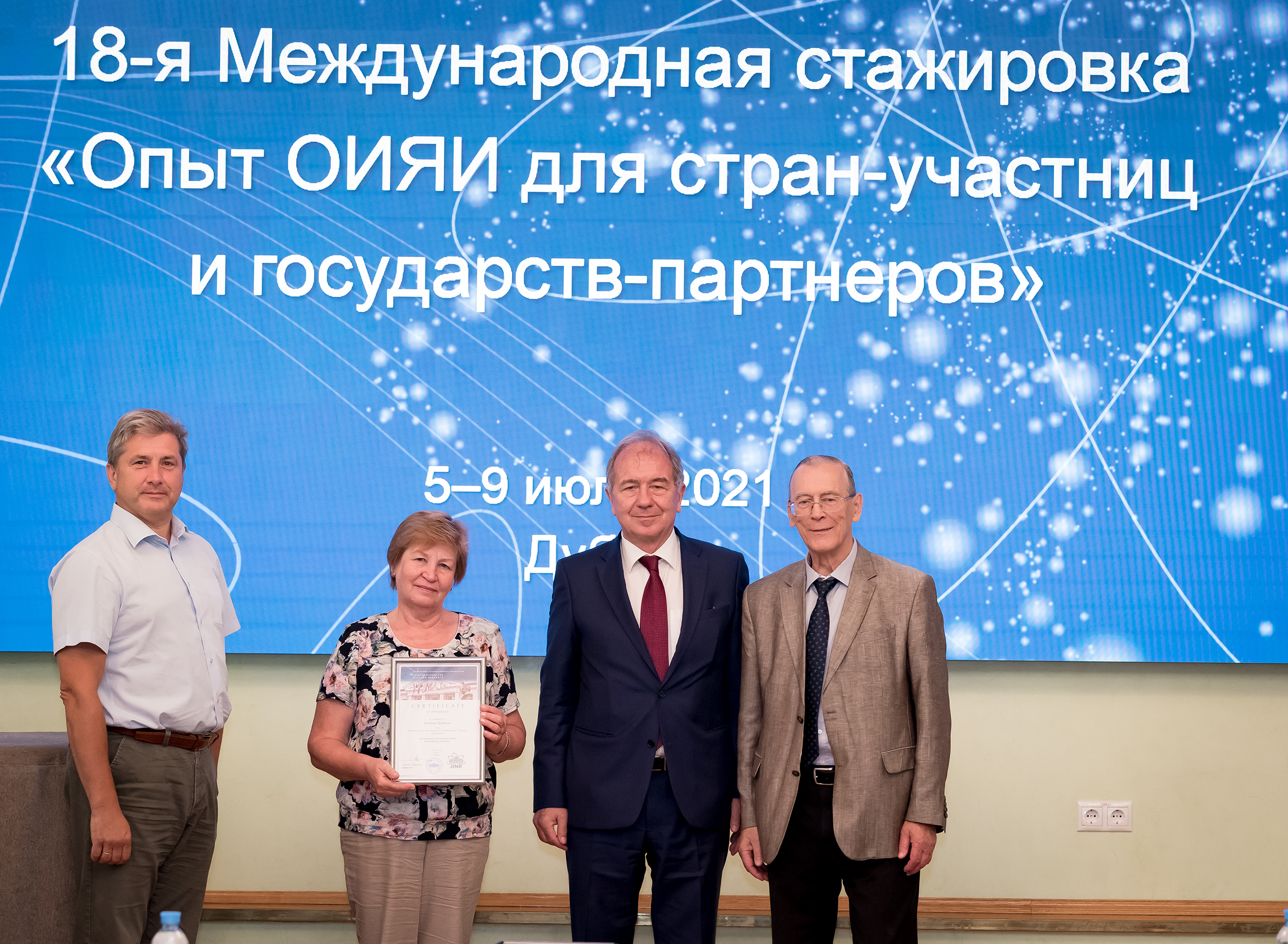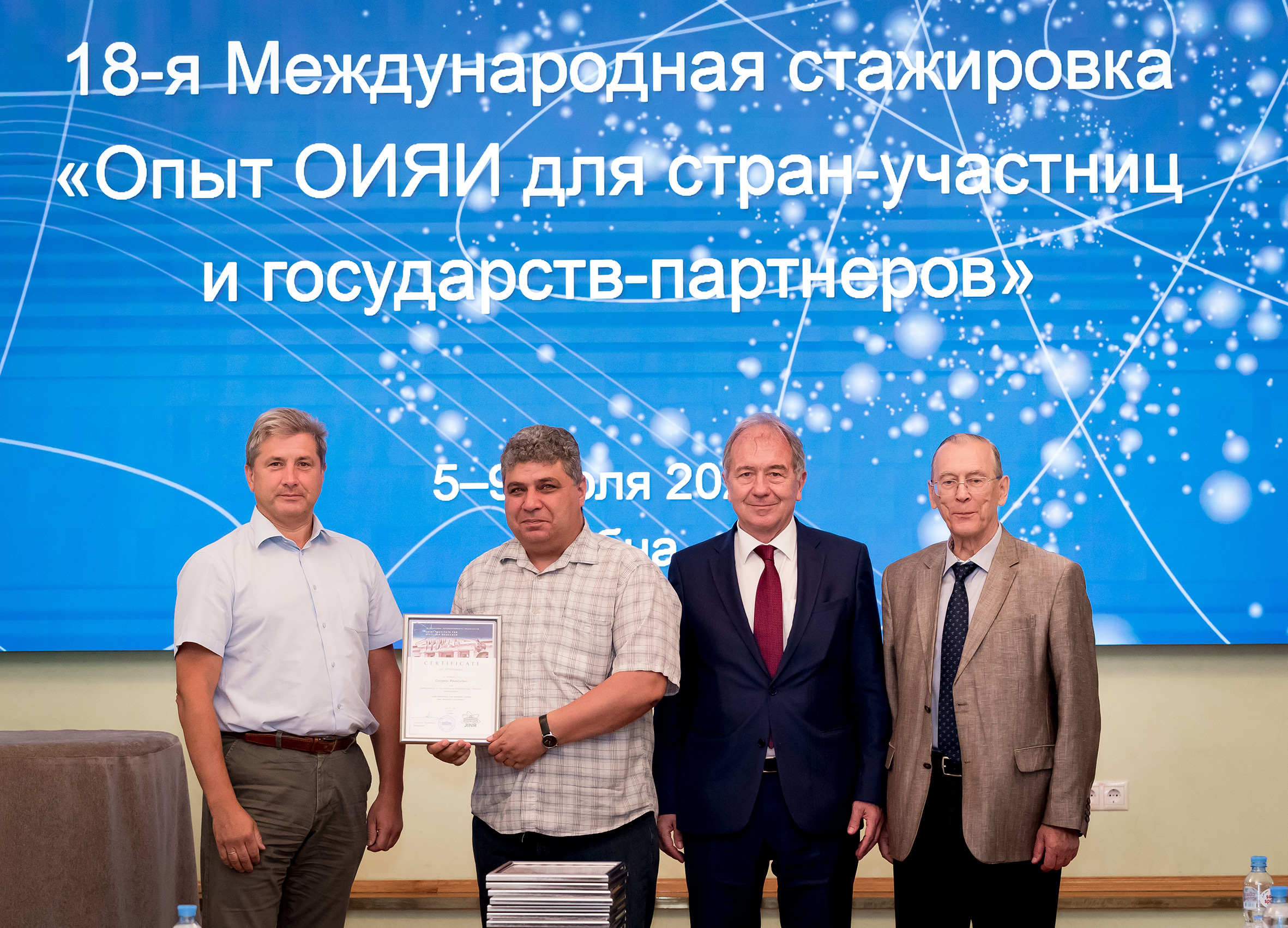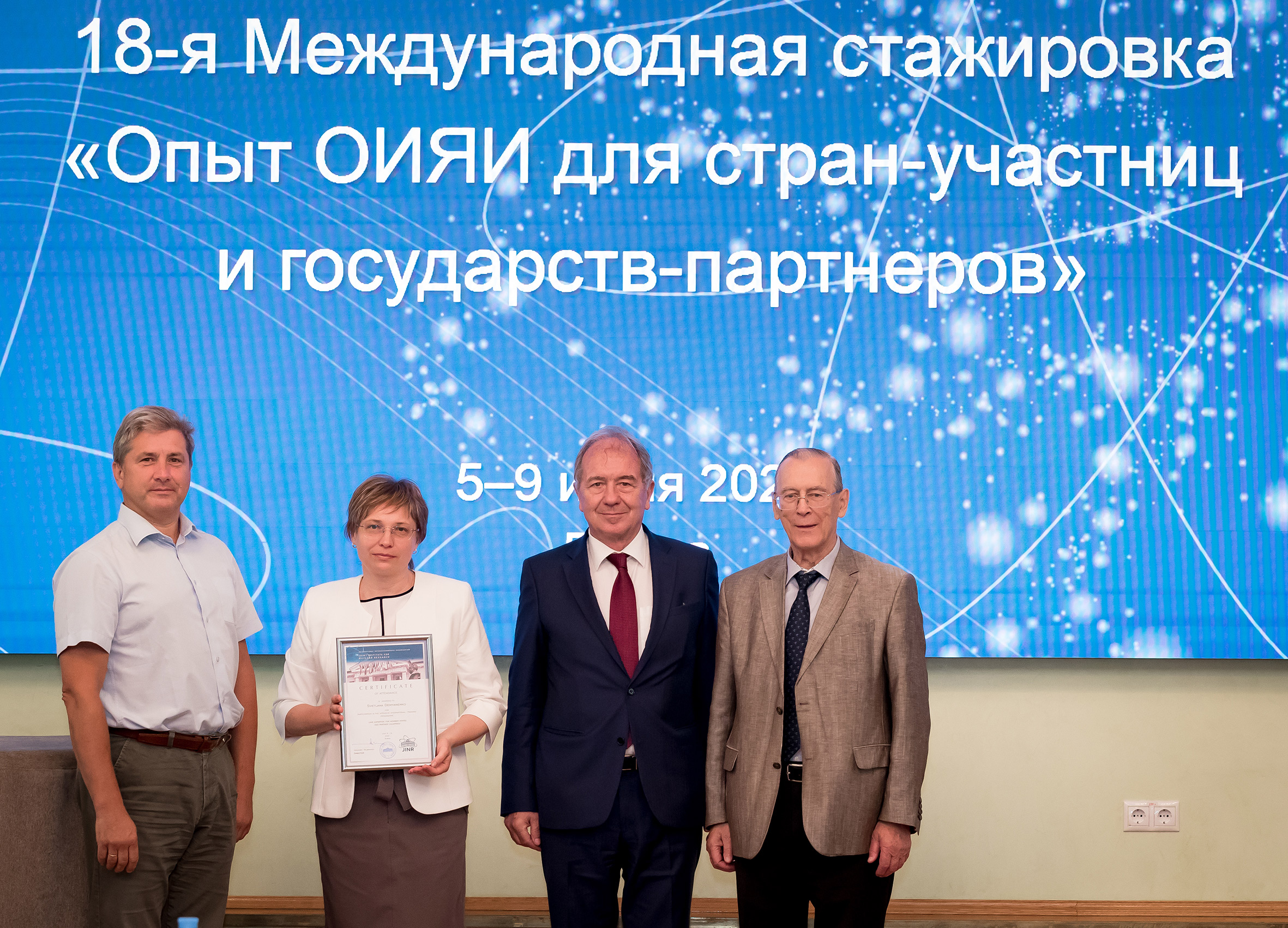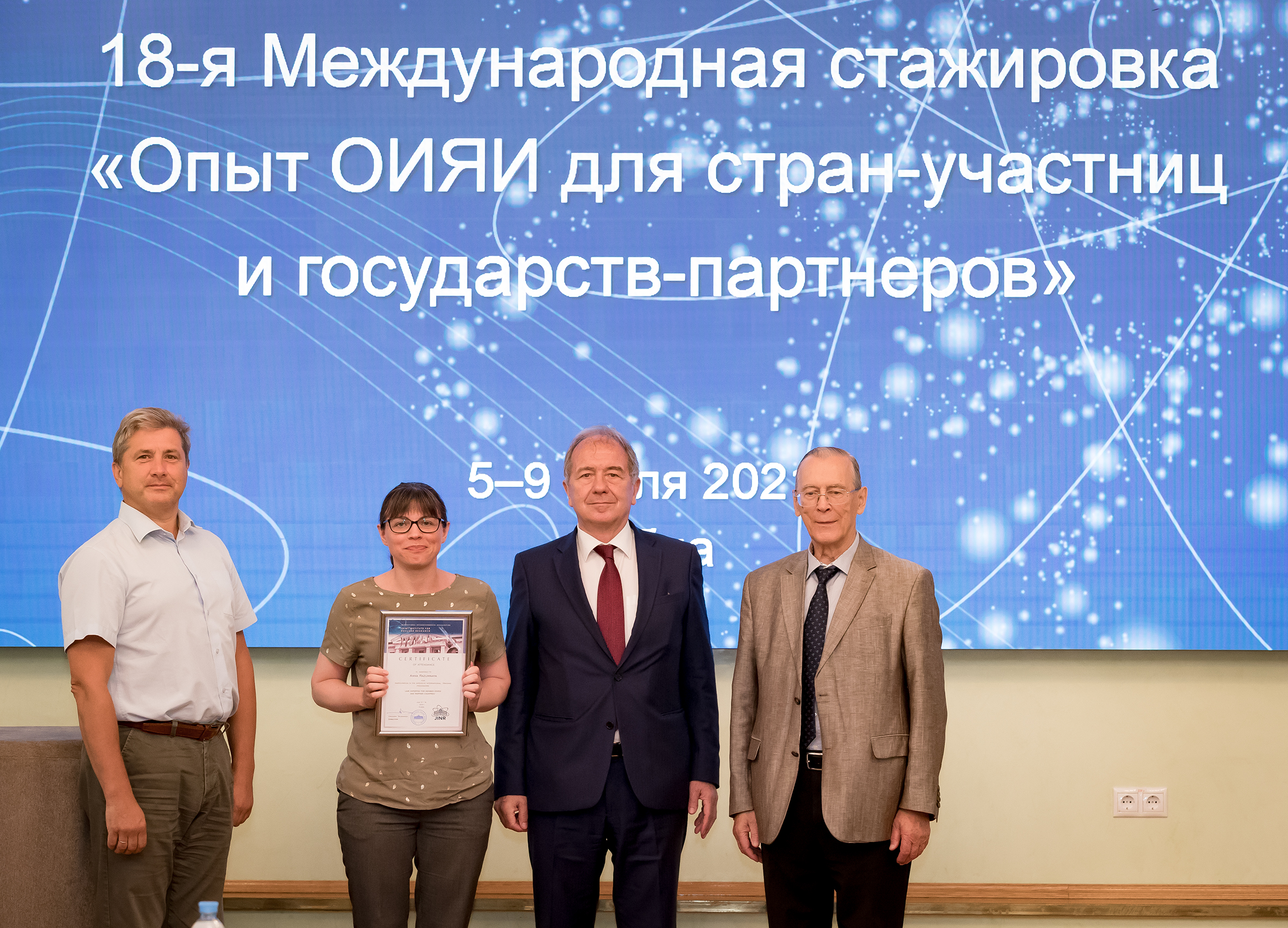About results of JEMS-18: “JINR is a big scientific universe”
News, 13 July 2021
On 9 July 2021, a traditional round table with the JINR Directorate summed up the results of the 18th International training programme for decision-makers in science and international scientific cooperation «JINR Expertise for Member States and Partner Countries» (JEMS-18). The bulk of the participants of the 18th training programme represented universities of Bulgaria and Russia, and this brought up the topic of JINR interaction with scientific and educational organizations during a special round table on the sidelines of the internship on 7 July.
JINR Scientific Leader Academician Victor Matveev headed the JINR party at the final meeting. Vice-Director Latchesar Kostov, Chief Scientific Secretary Sergey Nedelko, Head of the International Cooperation Department Dmitry Kamanin, as well as representatives of the laboratories and the JINR University Centre also attended the meeting. Among the practical results of the training programme, participants noted the identification of the areas for joint with JINR scientific research, established working contacts, new topics for extending their own studies. Following a tradition, one of the central topics of the meeting was the attraction of young people to science. Representatives of the Kabardino-Balkarian State University and the North-Caucasus Federal University touched upon the issue of brain drain of young people from the youth-rich region of North-Caucasus. According to them, it is necessary to create an attractive environment in the educational and labour realms. The attraction of JINR and other leading scientific organizations of Russia to cooperation may be effective for it. Andrey Likhovid, the NCFU Rector, noted his readiness to send students of the University for an internship at JINR and spoke about scientific contact points found at JINR. The NCFU joins the JINR studies on biomonitoring and launches cooperation in the fields of radiobiological research aimed at the treatment of brain cancer. “We have also proposed our project. It relates to a significant topic of agricultural observations when introducing new technologies in agriculture. The discussion of testing our innovative ceramics for advanced laser development will take place these days. I see Dubna as one more place our country can be proud of. It is a unique scientific centre that unites international scientific efforts,” the NCFU Rector said. KBSU Vice-Rector Arsen Kharaev noted that cooperation with JINR would increase the University’s competitiveness and said, “Our communication with JINR in the scientific and educational fields can enrich both parties. We have plenty of ideas and a big number of advanced young people we can send here. We are leaving Dubna with a clear intention to return here being in a new status and begin practical cooperation.” Zamir Kalazhokov, Associate Professor at the Physics Department of the KBSU, expressed confidence that this cooperation would raise the level of scientific activities at the University, “As a physicist, I am really impressed with what I have seen: the laboratories, unique facilities, equipment. This will allow us to look at the objects we are studying from a different angle and find new ones. This refers to not only condensed matter physics and physics of nanosystems I am engaged in but also nuclear medicine that is relevant for the University.” Tatyana Goryun, Head of educational laboratories of the Institute of International Relations, noted JINR’s long-standing and fruitful relations with the National Research Nuclear University MEPhI. “This MEPhI Department trains specialists in the fields of scientific and technological diplomacy, future managers of international scientific projects. It would be nice to establish closer ties with the Joint Institute thus to obtain an opportunity for our students to learn more about JINR’s rich experience in the fields of international relations.” JEMS is an already established platform that gives a start to the cooperation of researchers and joint scientific projects with JINR. Thus, representatives of the Southern Federal University have come for JEMS-18. Their visit continues the participation of the SFU delegation in the previous training programme. Head of the Department “Nanotechnology” at the SFU Faculty of Physics Anna Razumnaya said that training of qualified employees is the strategic aim and noted the following, “In a few days, we have seen that JINR provides great opportunities for the development of students, improving skills of both young and experienced researchers. Moreover, it makes it possible to improve the quality of our research by studying new methods and approaches. Equipment of JINR ensures an opportunity to set brand-new large-scale tasks.” Svetlana Demyanenko, a leading researcher at the SFU Laboratory “Molecular Neurobiology”, added to the comments of her colleague that the training programme allowed her to establish contacts with colleagues from universities of North Caucasus and Bulgaria, as well as meet wonderful scientists at the JINR laboratories who are “ready to solve the tasks beyond the framework of proposed opportunities”. Zhelyazka Raikova, Deputy Dean of the Physics and Technology Faculty of Plovdiv University, shared with the audience an extensive plan of action she would fulfil on returning home. She noted long-standing traditions of the Plovdiv-Dubna cooperation, in particular, seven students from this university are involved in the NICA project now. Zhelyazka Raikova noted that informing young people about JINR opportunities, starting from school age, is one of her major tasks. She highlighted the importance of visits of Bulgarian students and postgraduates to JINR. In the meantime, this format is limited by the conditions of the pandemic, so Ms Raikova highlighted the prospects of the INTEREST programme and online excursions to JINR. Traditional cooperation with Dubna that Bulgaria is going to intensify was also mentioned by Dean of the Faculty of Physics at Sofia University Georgi Rainovski. Participation in JEMS allowed him to find new areas for cooperation with JINR in the fields of nuclear physics. At the same time, one of his tasks for the visit was to work on the issues of the upcoming opening of the JINR Information Centre in Sofia University in September 2021. His colleague and Deputy Radoslav Rashkov, who has great hopes about the opening of the Information Centre for attracting the youth to science, expressed an opinion that it would be useful for students to have scientific supervisors from both the University and JINR in joint projects. Yanko Toshev, Head of the “Operation” direction of the “Production” management at the Bulgarian Kozloduy NPP, also thanked organizers for the interesting and rich programme. “Here, at the Institute, there is not only knowledge but also gifted hands, as well as the basis for making scientific discoveries,” he added. When sharing impressions, Atanas Dobrev, Director of the International Cooperation Department of the Bulgarian Nuclear Regulatory Agency – a long-standing JINR partner – highlighted that the JEMS training programme is “an excellent opportunity to learn about achievements and the scientific infrastructure of JINR in a very short time”. In addition to working on opening the JINR Information Centre in Sofia, he managed to devote time to the issues of preparations for the CP JINR meeting scheduled for November in Bulgaria. “I have seen a lot of opportunities for further cooperation enhancement. It is important for me that I managed to meet and talk to the Bulgarian national group at JINR,” he added. “JINR is a big scientific universe. I am glad that all of us and I are a part of this universe,” an associate professor at Sofia University Tsvetan Vetsov summed up his impressions. Impressions exchanged and the results summed up, the round table was completed by a solemn ceremony of awarding certificates of the training programme to participants.Photos by Elena Puzynina
